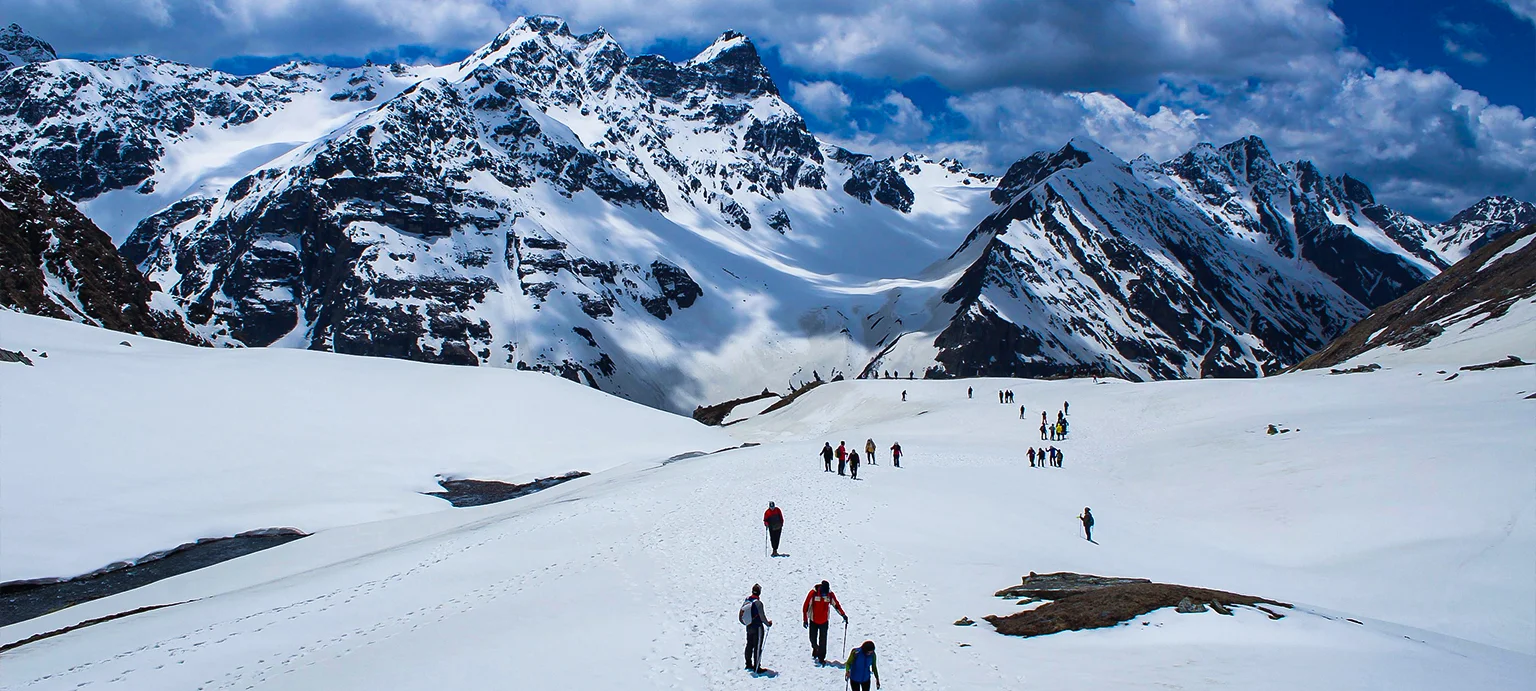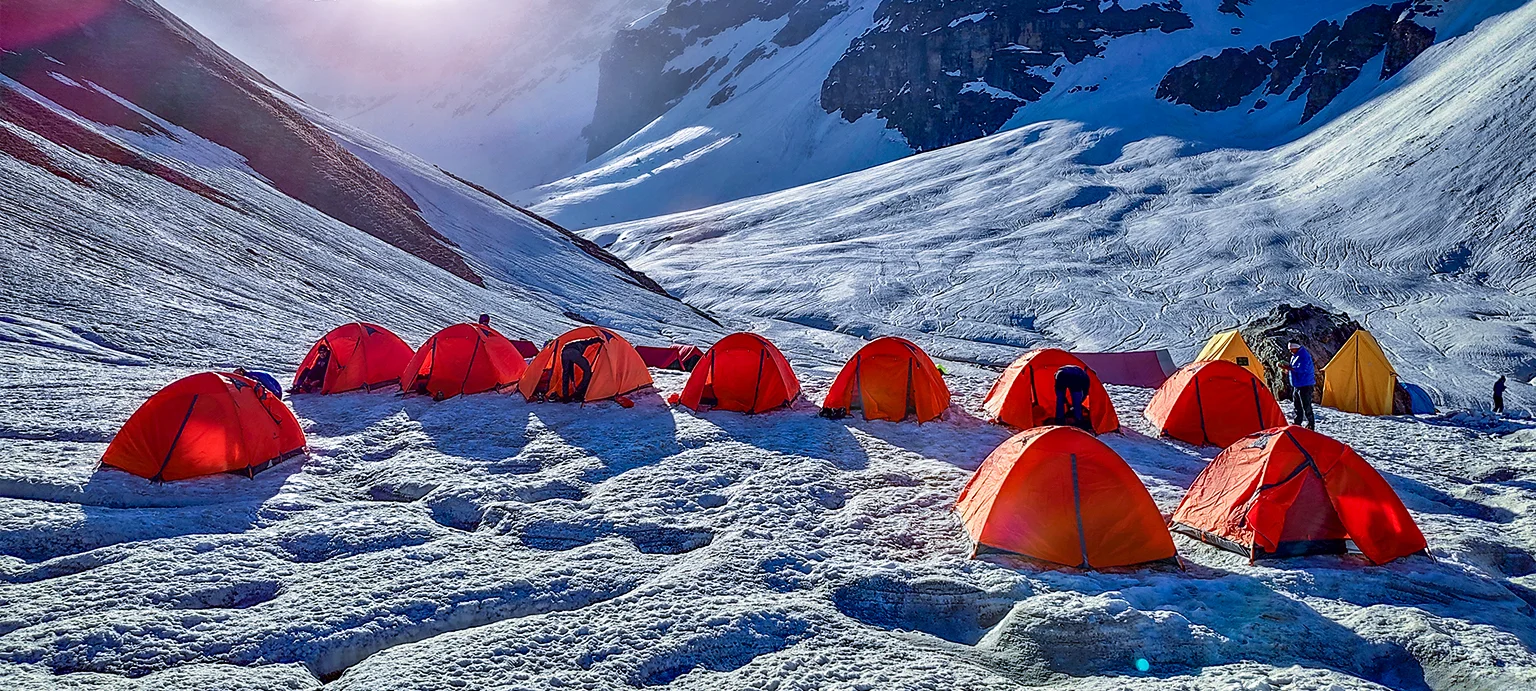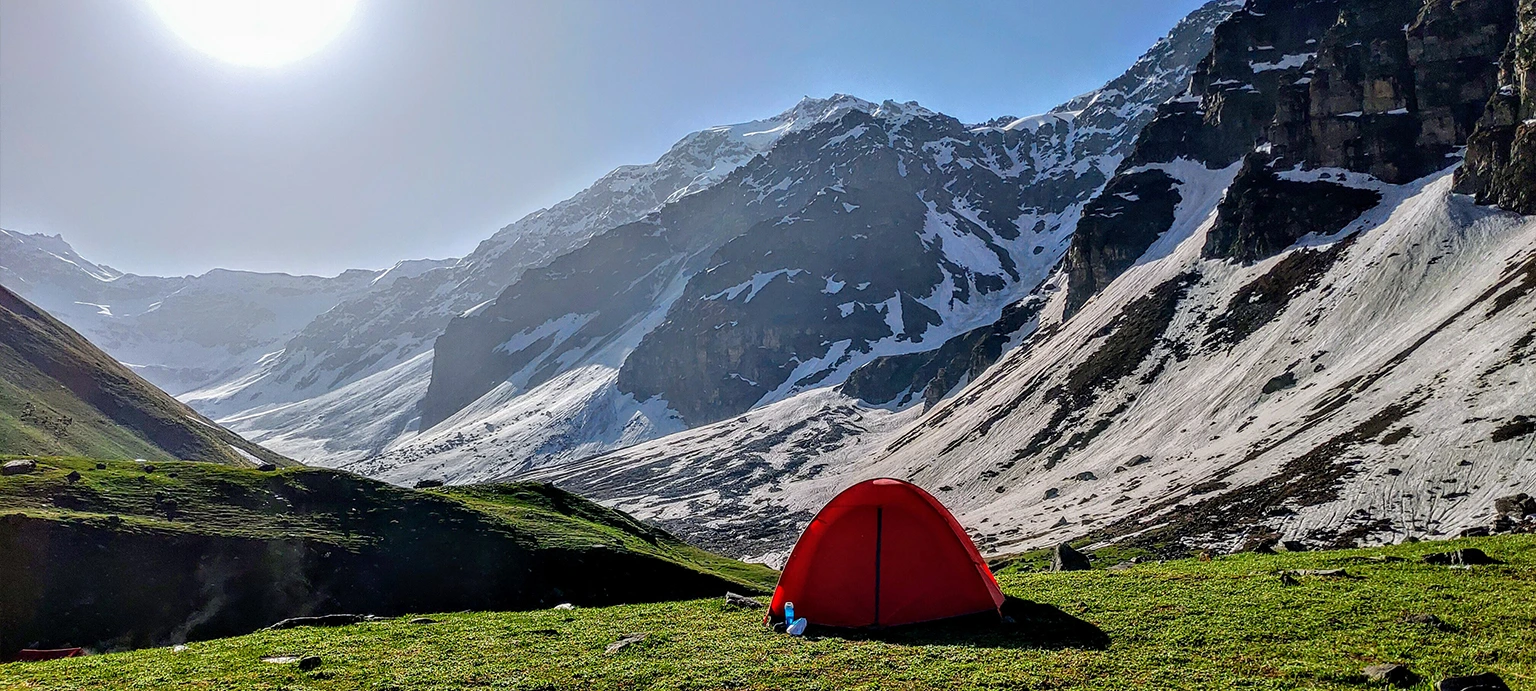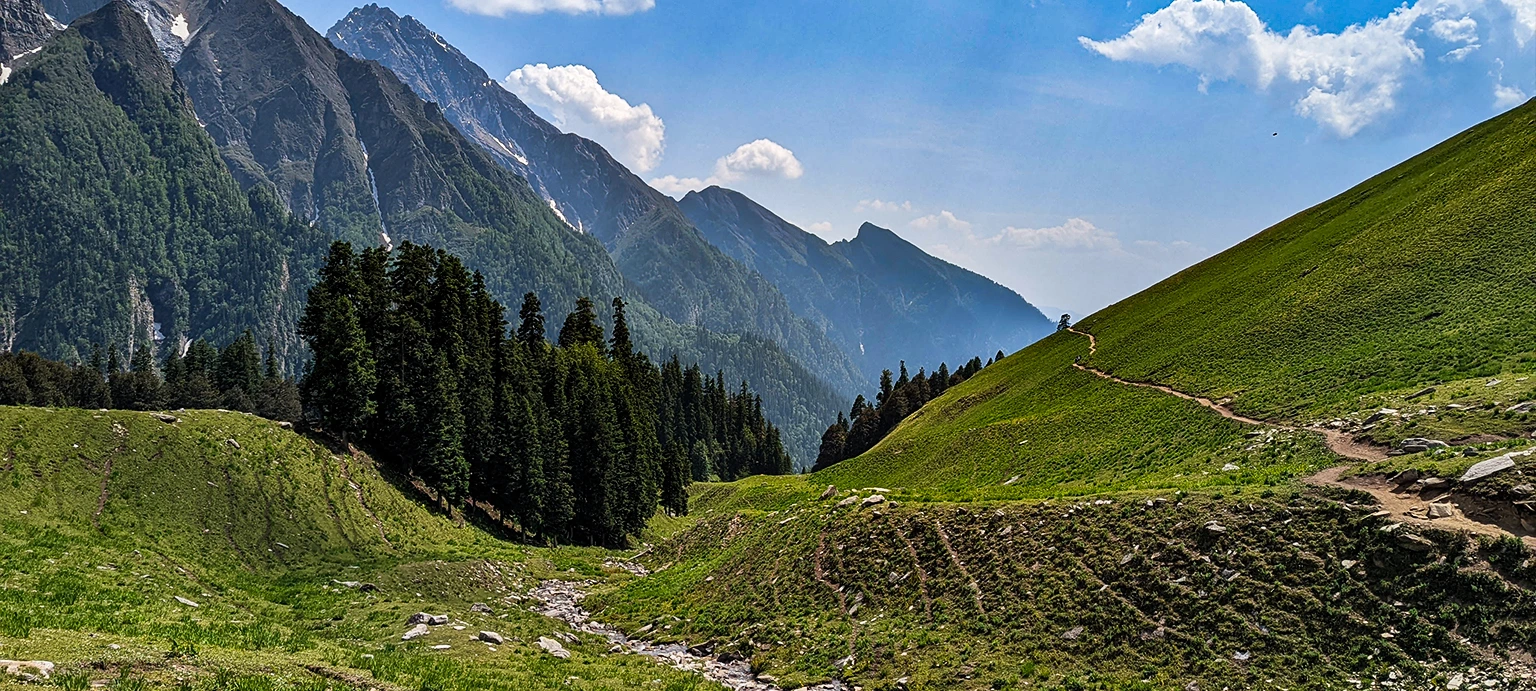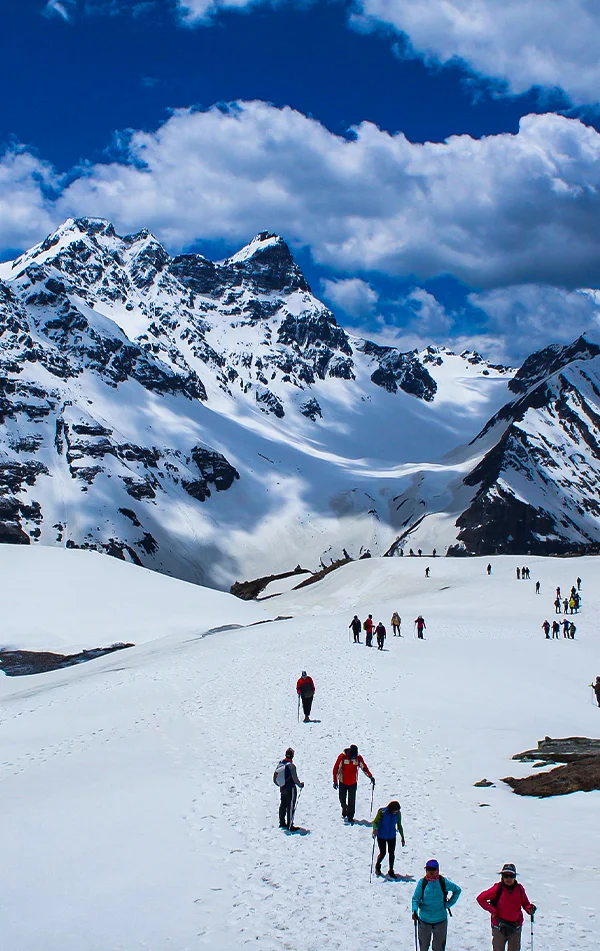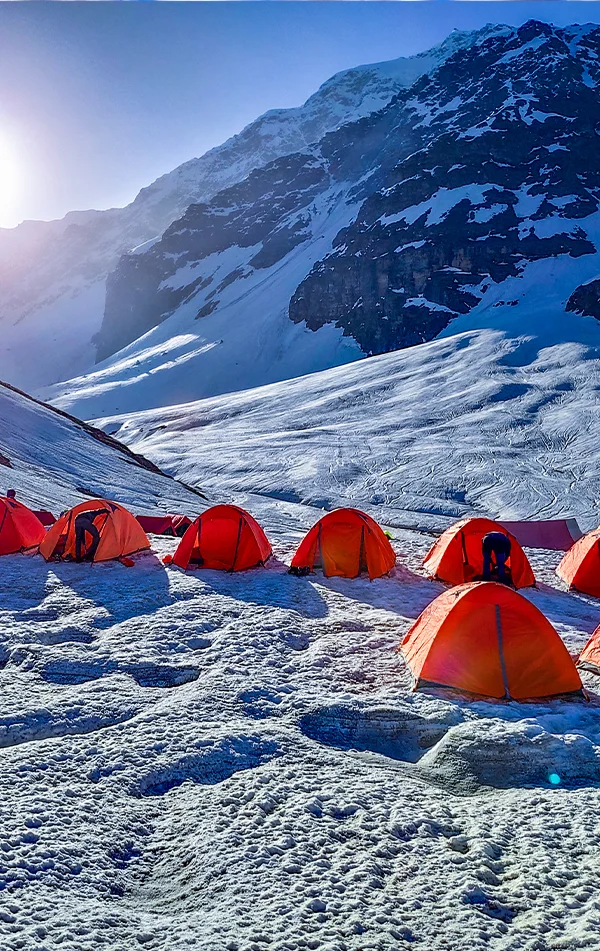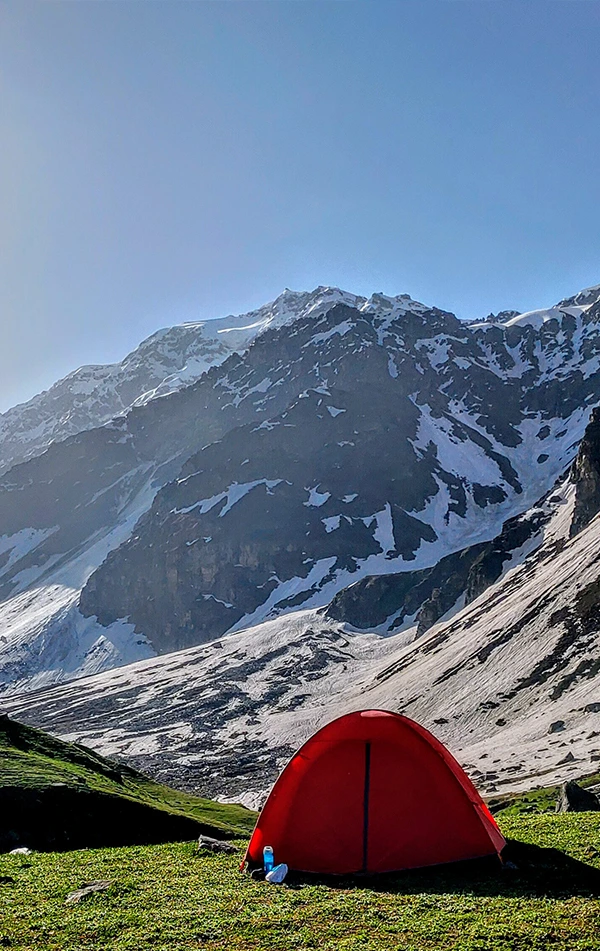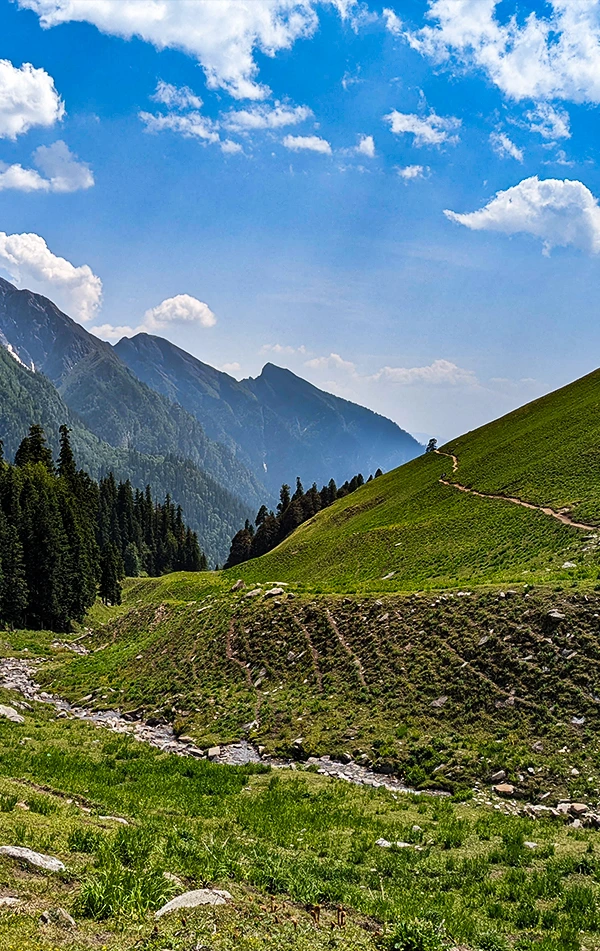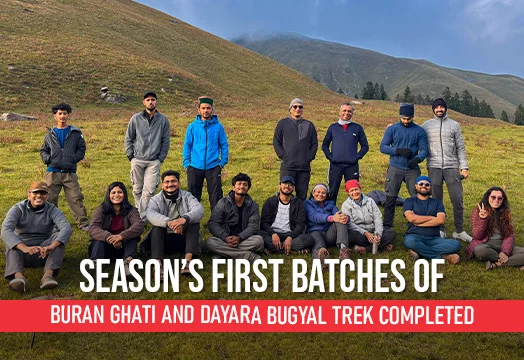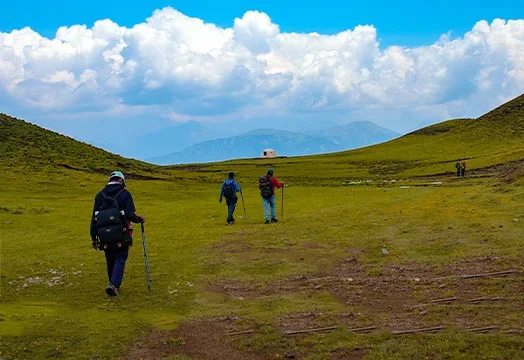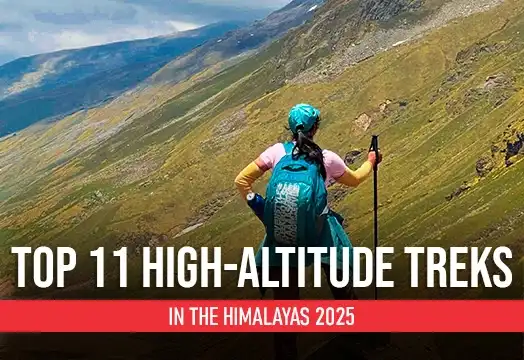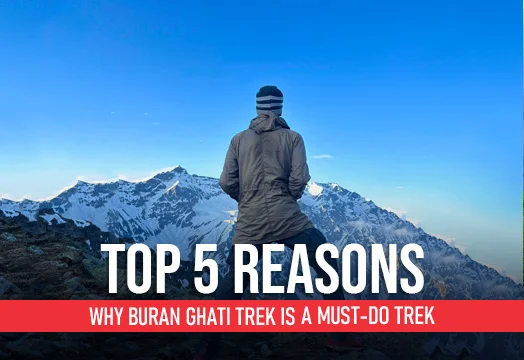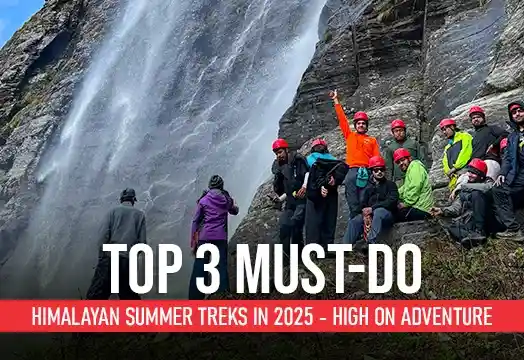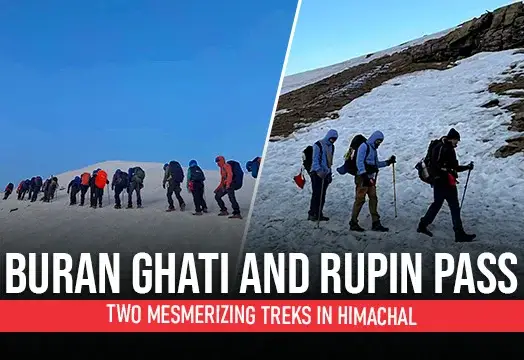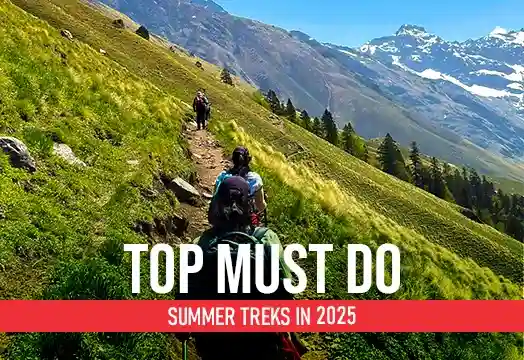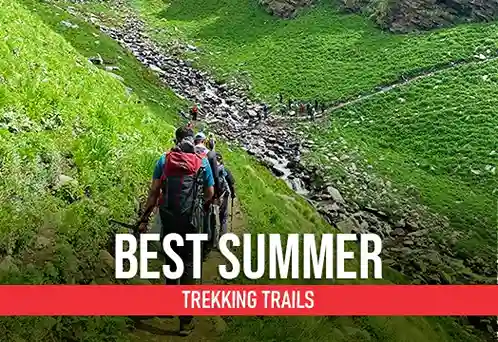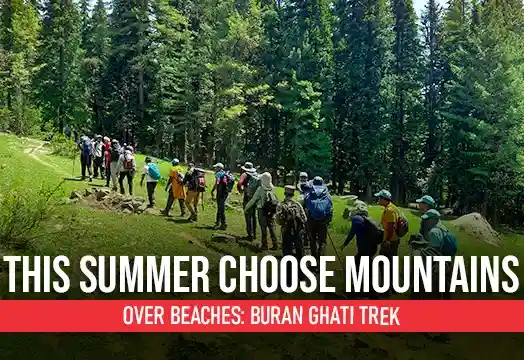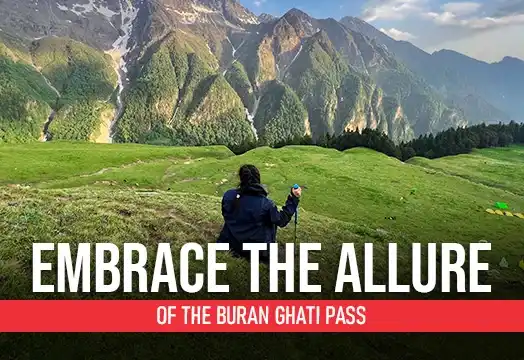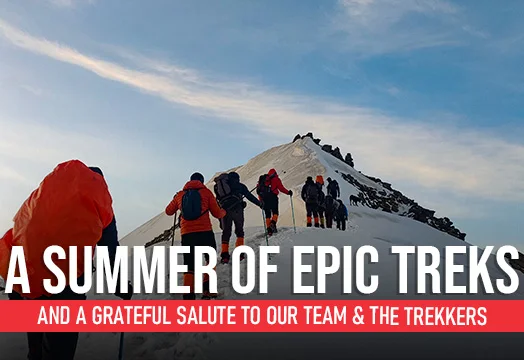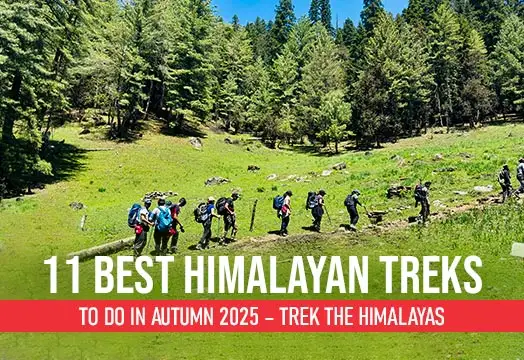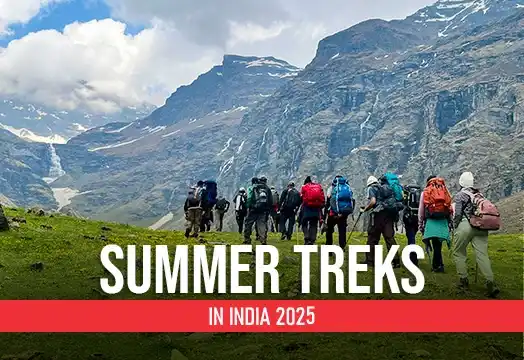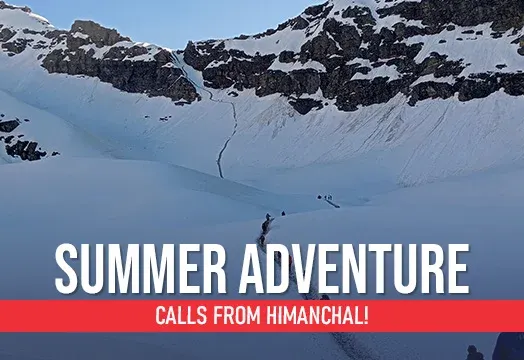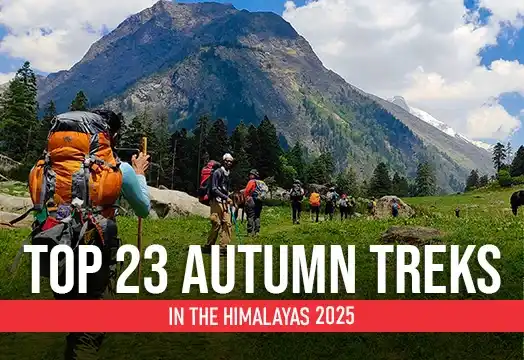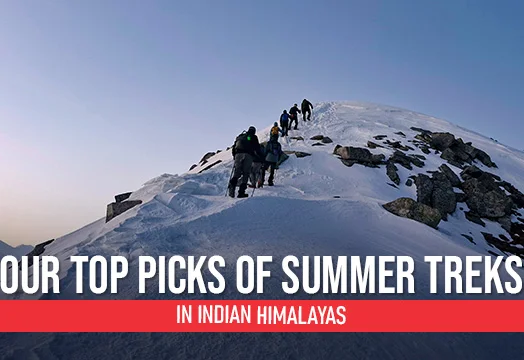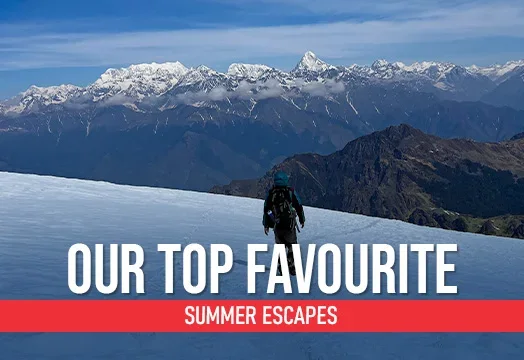Buran Ghati Trek

Region
Himachal Pradesh | India

Duration
7 Days

Max Altitude
15000 Ft.

Trekking Km
37 KM

Grade
Moderate to Difficult
Get in Touch with Our Trek Expert
91 8191004846 info@trekthehimalayas.comMonday - Saturday: 10 AM to 09.30 PM (GMT +5:30)
Sunday: 10 AM to 05.30 PM (GMT +5:30)
16500 /Person
- May-2026
- June-2026
- September-2026
- October-2026
- Services from Janglik to Barua village
- Join as an Ambassador & Trek Free Explore Details
- Trek again for free
- Avail Special Casual Leave if you’re a Central Govt. employee.
- Base Camp Accommodation: Home stay with attached washroom (no bunk beds).
- Complimentary cloakroom at base camp for safe storage.
-
Pickup & Drop Location:
Old Bus Stand, Shimla
Pickup: 05:30 AM | Drop: 11:00 PM–01:00 AM (weather/road dependent)
Keep a buffer day and arrive a day early to avoid delays.
Add-ons
Insurance 280
- Insurance is mandatory.
- It is available for Indian citizens only.
- Non-Indians have to take insurance on their own.
- If you already have the high altitude trekking insurance, email for a refund after booking.
- The cancellation policy will be implemented in accordance with the trek cancellation policy.
- For more details about insuranceclick here
- + 5% GST will be applicable
Transport 3000
- Transportation Shimla to Janglik & return from Barua village to Shimla is optional.
- Choose add-ons during booking. If missed, log in and add them later.
- Book transportation at least 10 days before the trek.
- Cancellation 4 or more days before the start of the trip results in a 100% cash refund.
- Cancellation less than 4 days from the start of the trip results in a 50% cash refund.
- Cancellations made on the trip date are not eligible for a refund.
- + 5% GST will be applicable
Offload 4800
- Backpack offload is optional.
- Choose add-ons during booking. If missed, log in and add them later.
- Book off-load at least 10 days before the trek.
- For offline bookings at the base camp, a convenience fee of Rs. 5800 applies.
- Offload can't weigh more than 11kg. Offload should have a waterproof cover. Suitcases/trolleys will not be allowed.
- In the event that you choose to cancel your trek prior to the departure date, you will receive a full refund.
- + 5% GST will be applicable
Single Occupancy Tent 3000
- Single Occupancy Tent is optional.
- Choose add-ons during booking. If missed, log in and add them later.
- Book Single Occupancy Tent at least 10 days before the trek.
- Cancellations made before the trip date will receive a full refund.
- + 5% GST will be applicable
Get in Touch with Our Trek Expert
91 8191004846info@trekthehimalayas.com
Monday - Saturday: 10 AM to 06 PM (GMT +5:30)
Overview
Trek Name: Buran Ghati Trek
Days: 7
Adventure Type: Trekking
Base Camp: Shimla
Season:Summer | Autumn |
Month:May | June | September | October |
Country: India
Altitude: 15000 Ft.
Grade: Moderate to Difficult
Rail Head: Kalka
Stay: Homestay(Separate male & Female) & Camping
Food: Meals while on trek & at Homestay
Location: Himachal Pradesh
Distance: 37 Km.
Trail Type: Cross over trail | Start in one valley, traverse the pass, and ends in another valley.
AirPort: Jubbarhatti Airport, which is 22 km away from Shimla
Highlights:
- Services from Janglik to Barua village
- Join as an Ambassador & Trek Free Explore Details
- Trek again for free
- Avail Special Casual Leave if you’re a Central Govt. employee.
- Base Camp Accommodation: Home stay with attached washroom (no bunk beds).
- Complimentary cloakroom at base camp for safe storage.
-
Pickup & Drop Location:
Old Bus Stand, Shimla
Pickup: 05:30 AM | Drop: 11:00 PM–01:00 AM (weather/road dependent)
Keep a buffer day and arrive a day early to avoid delays.
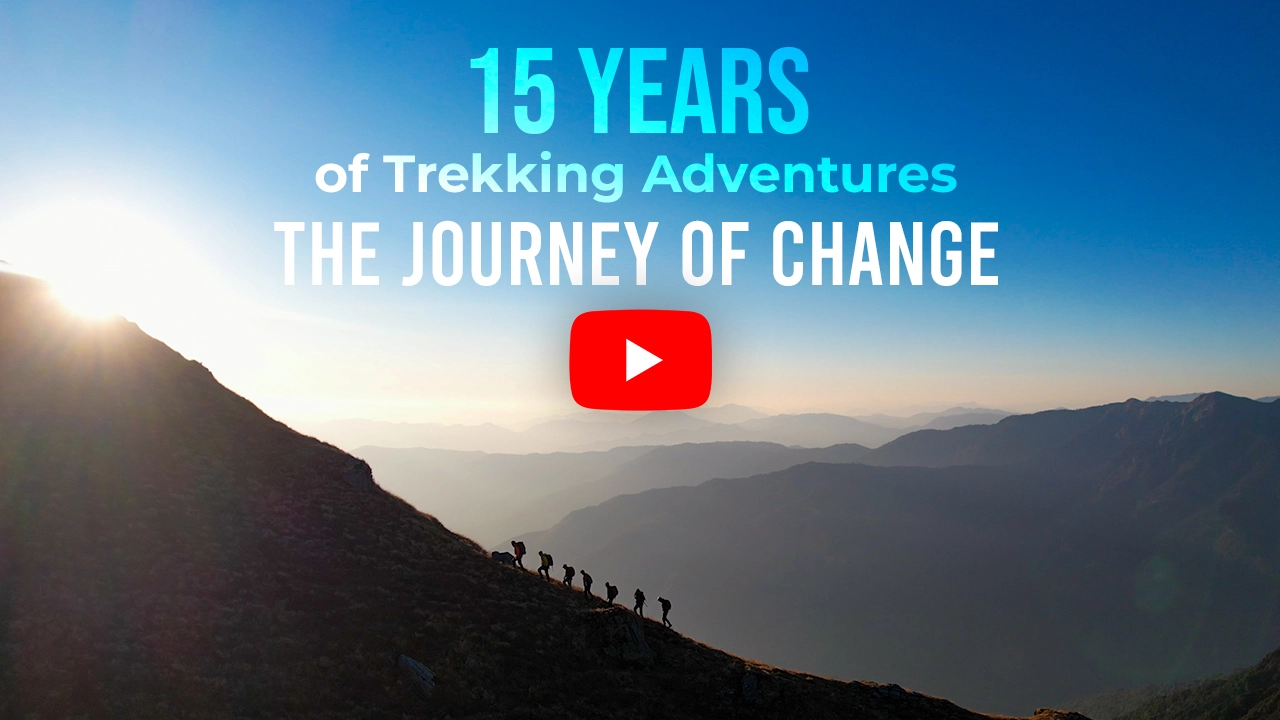
Why Buran Ghati Is A Must-Do Trek ?
- Buran Ghati Trek combines the best elements of various Himalayan trails, offering unparalleled scenic beauty throughout the journey.
- The trek takes you through forests of birch, maple, pine, and oak trees, providing a rich sensory experience.
- The trek includes technical sections, such as crossing the challenging Buran Ghati Pass, which demands good maneuvering skills.
- Visit the sacred Chandranahan Lake, believed to have emanated by the Gods, offering stunning alpine scenery.
- Explore the beautiful Dayara Meadows, a scenic stretch with grazing horses and a backdrop of snow-covered mountains.
- Pass through ancient villages, Janglik and Barua, showcasing Himalayan culture and architecture.
- Encounter the challenging Buran Pass, which transforms into a wall of ice until June, providing a rappelling opportunity.
- Experience the breathtaking Litham campsite, nestled in the confluence of two valleys with stunning waterfalls.
- Enjoy panoramic views of the majestic Dhauladhar Range, one of the lower Himalayan mountain chains.
- Witness remote peaks popping above each other, creating a spectacular visual treat.
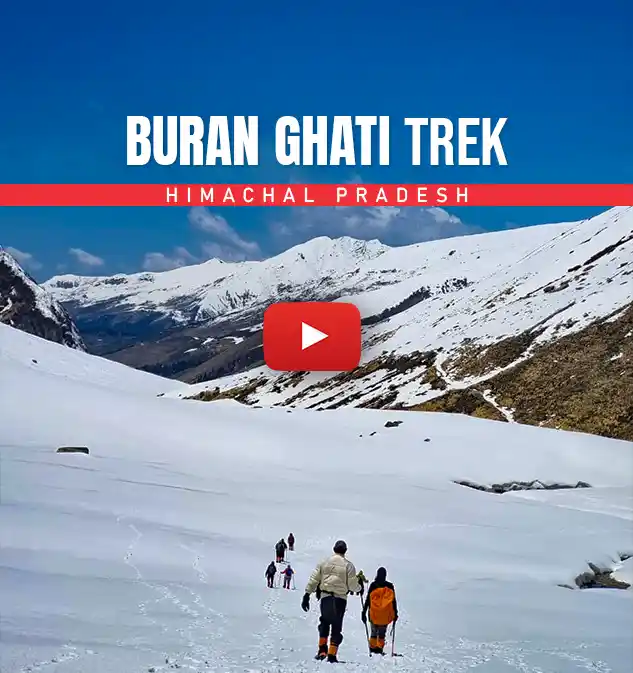
Who Can Participate
- Age Requirement:
- Minimum 14 years
- First-timers are welcome, though prior trekking experience is preferred. Good fitness is a must.
- Fitness Criteria:
- If the trekker wants to carry a backpack then he/she should be able to carry a 10-12 kg backpack. If opt Off-load option then the trekker should be able to carry 3-5 kg backpack.
- If a trekker's BMI is more or less than the normal range (18-27), please consult our Trek Coordinator before booking.
Loved it? Do it again for free!!!
At Trek The Himalayas, we understand that things don’t always go as planned. If you couldn’t complete your trek or just want to experience it once more, we’re giving you a wonderful opportunity – the chance to do the trek again without having to pay the trek fee again.
Pay a one-time fee to select your favourite trek, and you can repeat it as many times as you want within 5 years.

Terms and Conditions:
- The offer is valid for 5 years from the trek departure date.
- Participants are not required to pay the trek cost again, but they will need to cover transportation, insurance, and trek permit costs.
- This offer is non-transferable and is only applicable to TTH's limited fixed departures.
- The offer does not apply if the participant has received a refund, a voucher, or a transfer to another trek that has been used previously.
- The offer will be activated once the participant reaches the trek base camp.
- This is not an offer linked to any purchased package; rather, it is an initiative extended by TTH out of goodwill, without any cost to the trekkers.
- Trek The Himalayas reserves the right to cancel this offer at any time, in case of:
- Disobeying the safety regulations, trekking rules, or the code of conduct
- Black listing due to bad behavior, payment issues, or providing inaccurate information
- Anything that would damage the brand or reputation of TTH
- In order to rebook, just fill in our booking form online or call our team.
Buran Ghati Trek Itinerary
Shimla to Janglik
- Altitude:- 2,800 m/ 9,200 ft.
- Drive Distance: 160 km |9-10 hr.
- Pick-up:- Shimla Old Bus Stand at 6.00 am.
- Phone Network:- Rohru.
- Breakfast and lunch excluded, dinner included.
- Shimla - Rohru: 115 Km, Rohru to Chirgaon: 15 km, Chirgaon to Tangdu: 20 km, Tangdu to Janglik: 10km.
Shimla is our meeting point for the Buran Ghati trek, and it is at a distance of approximately 160 km from Janglik. From Shimla we will drive past Rohru in a scenic drive, Pabbar River flowing alongside the route. Driving past many quaint Himalayan hamlets, witnessing Himalayan culture and architecture, we will reach the pine covers in Tangdu and further past, we will arrive at Chirgaon. From here, it is mostly a dirt track but the journey is not very long.
Transportation to Janglik will be arranged at the pickup point in Shimla and we will drive to the closest roadhead to Janglik. We will have our lunch at Chirgaon. Also, keep in mind that the last ATM point is at Rohru, so if you want to withdraw cash, you need to do it from here. Also, the mobile coverage is available till Rohru, after that there is no mobile network. After reaching Janglik, we will check in at a local guest house or sleep in the campsite. Hot Dinner will be provided at the campsite/guesthouse. In case of bad weather road conditions turn bad so we might take a short hike of approx. 1.5 Km to reach base camp Janglik from Tangdu.
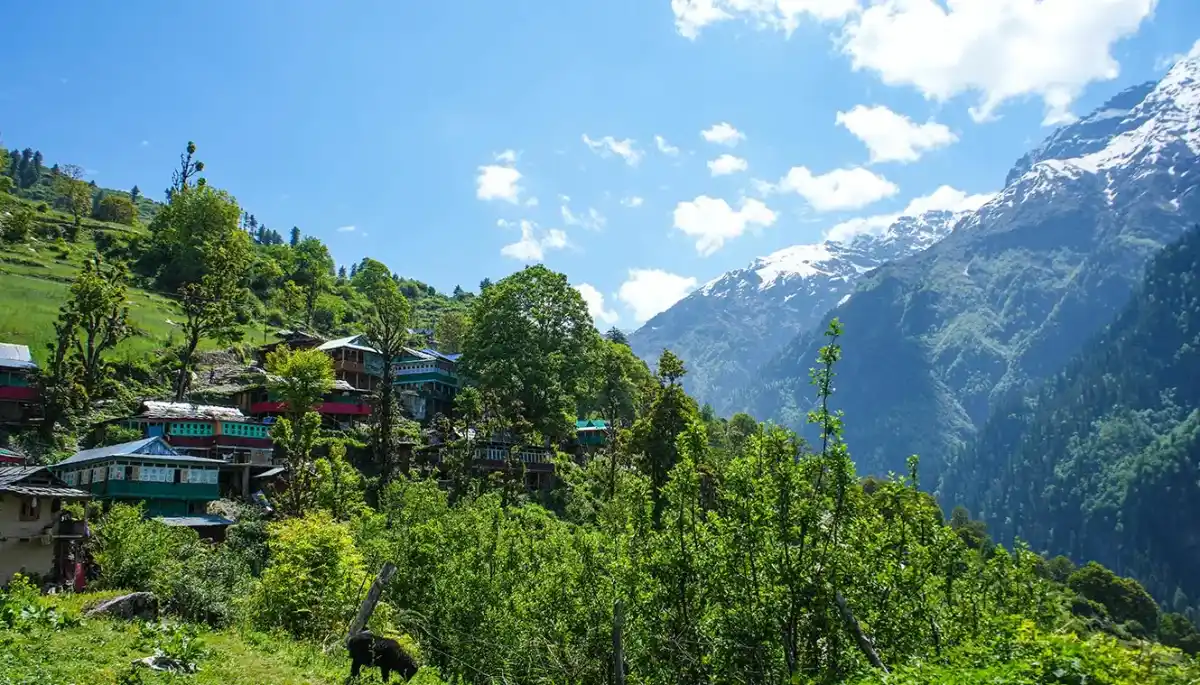
Janglik to Dayara Thatch
- Altitude: 3,400 m/ 11,150 ft.
- Altitude Gain: 600 m/ 1,950 ft.
- Trek Distance: 6-7 km | 5-6 hr.
- Grade: Moderate ascent.
- Water sources available on the way.
- Lunch and snacks are offered at the campsite.
- You will cross a few shepherd's hut on the way.
- Trek through pine, Oak, deodar forestshuts and meadows.
- In the evening climb some hillocks for better acclimatization.
- Stay in a tent (twin sharing).
Waking up to a beautiful valley view at Janglik, we will have a delicious breakfast with warm tea before we begin our journey ahead. Today is the most scenic day of the trek as you climb uphill, all the way to the Dayara Meadows. While it is a beautiful climb from Janglik to Dayara Thatch, with many picturesque vistas but you also gain altitude very rapidly.
We will ascend until we arrive at a forest cover of Oak and Pine. After walking for about 30 minutes through the forest cover, you will gradually begin to descend through the forest. As you come out of Janglik, you will see beautiful wheat fields lined by mud huts on the edges of the fields and soon we will leave these mud houses behind and begin climbing uphill.
After about an hour of trekking, you will step on to a ledge from where you can see spectacular views of Janglik, Tangdu and other surrounding villages. The ledge is beautifully set beneath a pine cover. We will rest here for a while, admiring the view and enjoying some refreshments. From here, the trail goes through a clearing and again ascends up into a forest. The trail is steep at the beginning but soon turns into a gradual ascend. About 30 minutes later, you will get out of the tree line and step into a vast expanse in front of you. We will turn left and climb uphill slowly getting out of the tree line. The trail here is broad and well-defined.
After about an hour, we will enter another coniferous forest cover. The trail here ascends gradually and soon we will trail out of the forest again and into the lush green meadows of Dayara, surrounded by snow-clad mountains on all sides. Our campsite for the night. In the evening, we will climb small hillocks nearby for better acclimatization as there is a rapid altitude gain. After we come back from acclimatization walks, a hot dinner will be served at the campsite, after which we will retire in our camps.

Dayara Thatch to Litham
- Altitude: 3,600 m/ 11,800 ft.
- Altitude Gain: 200 m/ 650 ft.
- Trek Distance: 4-5 km | 3-4 hrs.
- Grade: Easy gradual ascent and then descent.
- Major Attraction: Silver Birch trees and Chandrnahan waterfall, sights of Dhauladhar Range.
- Water sources available on the way.
- Hot lunch provided at the campsite.
- Stay in tents (Twin sharing).
Starting the day early, exploring the Dayara Meadows after breakfast and the hot tea and begin our journey onward to Litham. In the morning rays of the sun, the meadows are simply captivating. You can soak in the morning freshness in the meadows and soothe your senses, leaving all worries behind. Photographers can capture some beautiful pictures of the morning rays of the sun in the vast meadows.
The trek from Dayara Thatch to Litham starts with a gentle ascent and the trail will take you through forest covers, meadows and streams. We will walk for about 15 minutes, gently ascending to a point where we will come across a stream. Ascending through forest covers of Oak and Pine, followed by a beautiful meadow we will begin descending through a silver birch forest cover and again through some lush meadows.
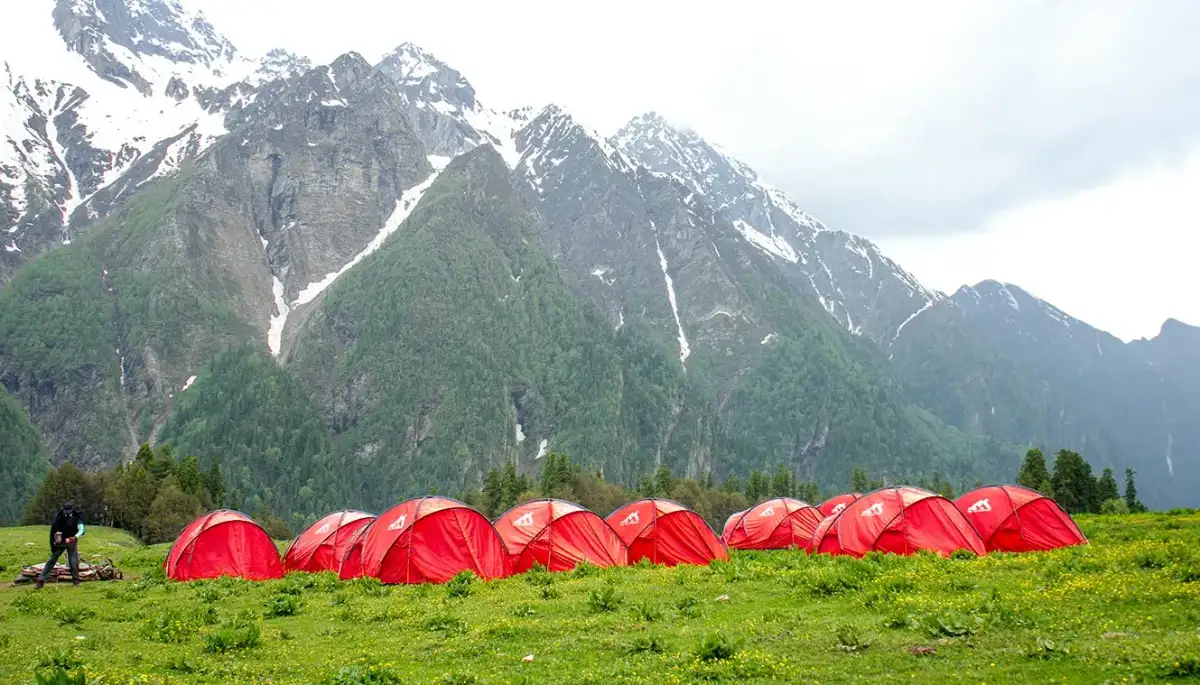
The entire trail is full of forest covers and meadows as well as some gushing streams, ample opportunities to refill your water bottles. Crossing the meadows we will trek towards the Guna Pass. A gentle ascent takes you to another forest cover and completely out of the Dayara campsite. We will cross a stream post which the trail climbs out of the thickets, with the Dhauladhar Range and Guna Pass coming into view.
Soon, we will come inside another forest of the Silver Birch trees. The silver birches are very old and you can see these ancient structures gnarled and majestic standing the test of time. Descending from the forest, you will come across another stream and the first clear views of Litham.
From the meadows, the trail begins to descend down to the Chandranahan stream, crossing the stream, we will arrive at our Litham campsite. From here you can observe the beautiful Chandranhan waterfall flowing from the Chandranahn snout, beyond this lies the Chandranahan Lake. We will stay the night at Litham campsite.
Acclimatization day, visit to Chandranahan Lake
- Altitude: 4,023 m/ 13,200 ft.
- Trek Distance: 6 km Both side | 6-7 hr.
- Grade: Difficult steep ascent and descent.
- Star early in the morning.
- Chandranahan is a group of 7 lakes and we will see 3 of them.
- Water sources available on the way.
- Hot lunch provided at the campsite.
Today’s day is for acclimatization as we make our way to Chandranahan Lake and back to the Litham campsite. After having tea and breakfast, we will head out towards the Chandranahan Lake. It is a 8 km trek from Litham to Chandranahan Lake and back and you will get a lot of opportunities to click some stunning pictures.
The glacial lake of Chandranahan is fed by the mountains surrounding it. To reach the lake, we will cross the stream just before the Litham campsite and continue walking in an upstream direction until we reach the top of the ridge. From here, walk towards the snout of the waterfall. This is where the lake emerges. The walk to the snout takes about an hour and a half and the lake site is marked by stone cairns.
Many small waterfalls cascade down to the lake from all sides. You can spend some time here, absorbing the serenity and clicking some beautiful pictures. We will then head back to Litham in the same way that we came. We will have lunch at Litham and spend the rest of the day here and stay at camps in the nights.
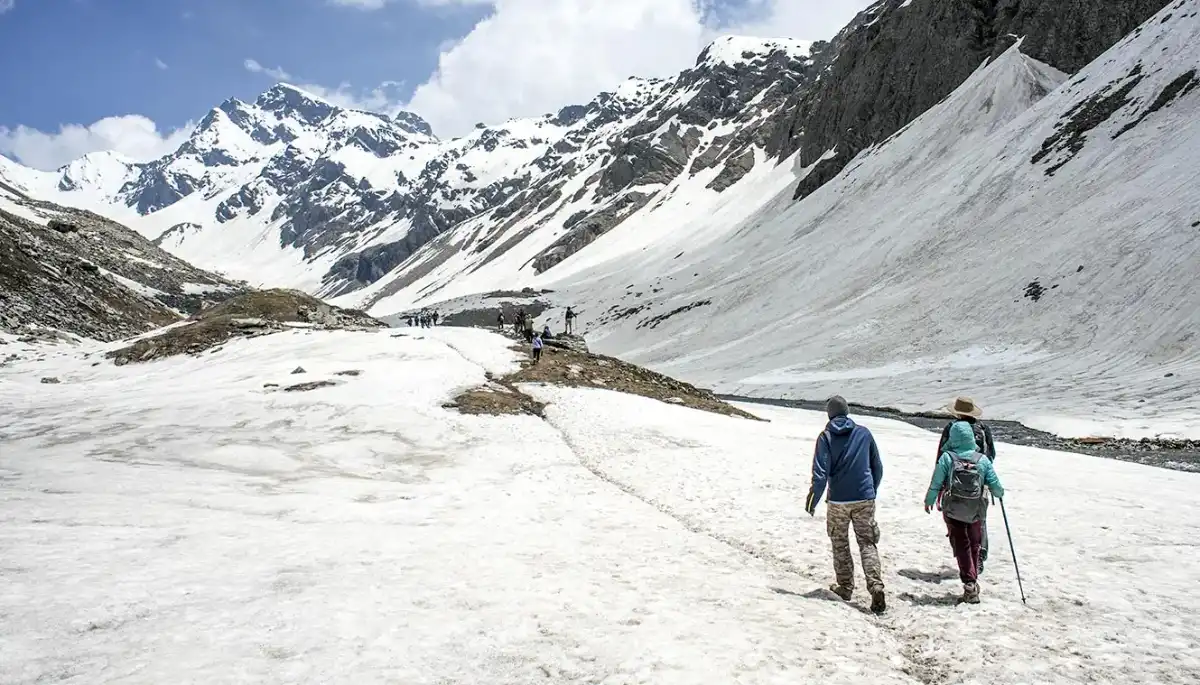
You will also get a good amount of snow in the month of June. As you reach the lake you will notice that the lake is a bit smaller in size and is fed by the snowfields around it. You can spend some time around the lake and click pictures of the panoramic view it has to offer before heading to Litham again. It will be a steep descent to Litham, therefore, you'll be starting early in the morning so that you reach Litham by lunch.
Litham to Dhunda
- Altitude: 4,000 m/ 13,100 ft.
- Altitude gain: 400 m/ 1300 ft.
- Trek Distance: 4-5 km | 4-5 hrs.
- Grade: Moderate with a mix of gradual and steep ascents.
- Water sources along the way.
- Hot lunch provided at the campsite.
- Pass is visible from the campsite.
- Trail is well marked by the shepherds.
- Stay in tents (Twin sharing).
To reach Dhunda from Litham it's approx. 3 hrs climb and you will arrive at an elevation of 13100 ft. From here, you can witness the magnificent Dhauladhar Range. Dhunda at 13100 ft offers the perfect setting for the summit of the Buran Ghati Pass. From here it's only a two-hour climb to the Pass.
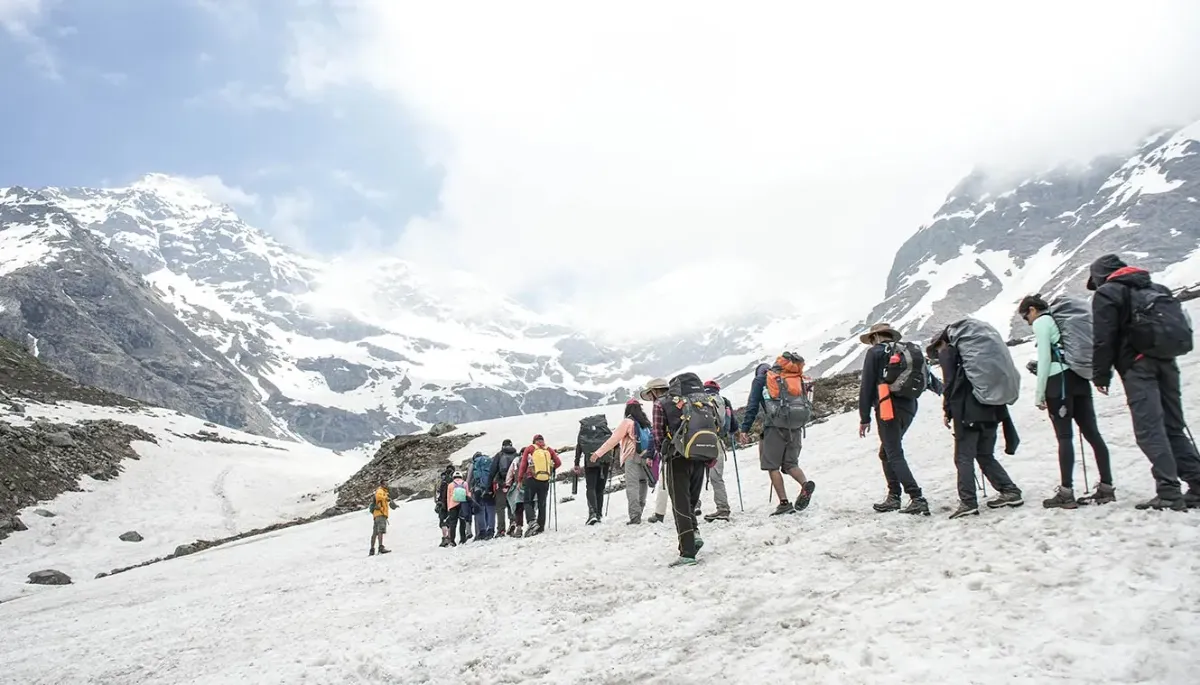
The trail takes a sharp ascent as you continue along the banks of the Pabbar River, which is now a gushing stream. Soon you will arrive at a U-shaped gorge and get your first views of the Buran Ghati Pass. Take a moment to relish sight before moving onward.
The climb to Dhunda follows a well-defined trail and after about an hour’s climb, you will arrive at the Dunda Ridge with spectacular views of Buran Ghati. The campsite is surrounded by snow-clad mountains on all sides. This is just the perfect alpine campsite with snowy mountains on all sides.
Dhunda to Munirang (River camp) via Buran Ghati Pass
- Munirang Campsite Altitude: 3,400 m/ 11,100 ft.
- Buran Ghatti Pass: 4,550 m/ 15,000 ft.
- Altitude loss: 600 m/ 2,000 ft.
- Trek Distance: 8 km (10 - 11 hrs approx).
- Grade: Difficult with steep ascent and descent, (Always be with Trek leader and other support staff).
- Carry 2 liters of water from the campsite.
- Lunch provided on the way, evening snacks at the campsite.
- Another side valley is full of junipers and crested shrubs.
- Camp nearby the river and shepherd's hut.
- Stay in Camp by the River and Shepherd's hut.
Today is the most strenuous trekking day and you will have to trek for about 10 to 11 hrs through both ascending and descending routes. From the Dhunda campsite follow the ridge and you will have to cross some boulders as you move towards the base of the Pass. Once you reach the base of the pass, it will take an hour of uphill climbing to make it to the top of the Pass. The trail is mostly covered in snow and the top touches an altitude of 15000 ft.
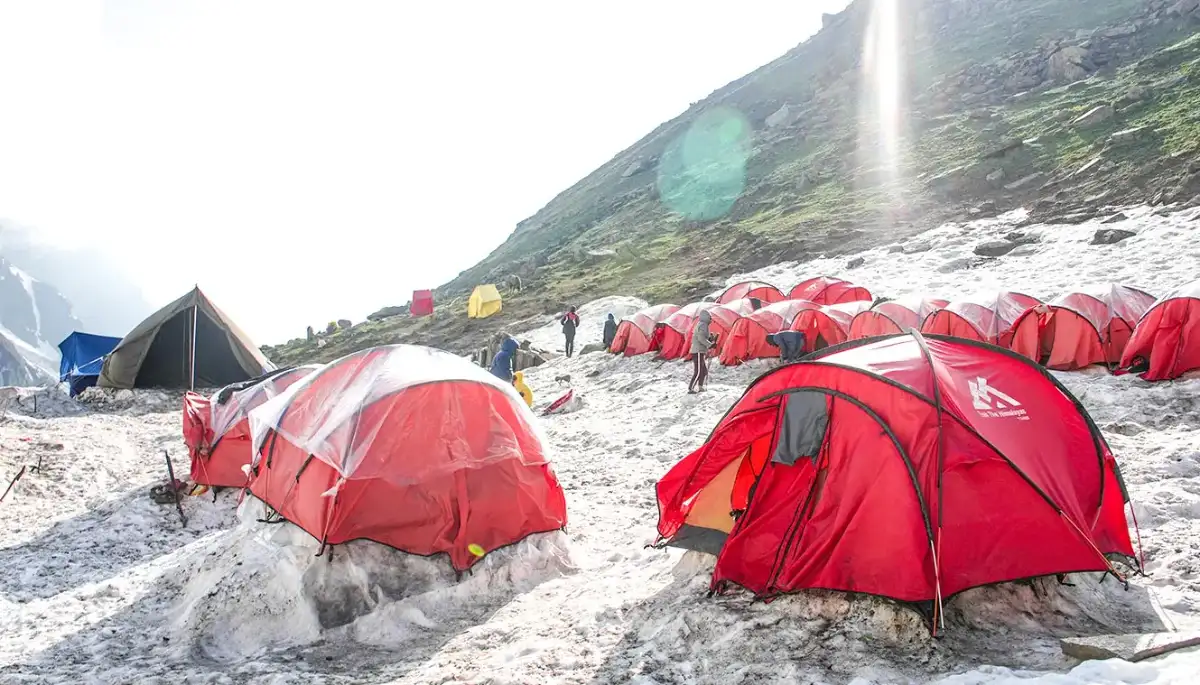
Once you reach the top, enjoy the enthralling views and while descending, it can be pretty risky to climb down without using ropes. It’s a very narrow ledge with steep drops on both sides. Follow your trek leaders’ instructions while descending.
Sliding down the ice walls makes the descent very quick. In about 2 hrs, you will get out of the snow line, losing as much as 3000 ft. Out of the snow line, you will now descend through a forest covers with junipers with the views of a lush valley in front of you. Descend another hour and you will reach a stream that you need to cross and across the stream is our Riverside campsite where we will retreat for the night.
Munirang to Barua village & Drive to Shimla
- Altitude: 2,300 m/ 7,700ft.
- Altitude Loss: 1,100 m/ 3,400 ft.
- Trek Distance: 5-6 km | 2-3 hr.
- Grade: Easy with a gradual descent. Well-marked trail, crossing through mixed forest.
- Carry 2 liters of water from the campsite, with only 3 water sources on the way.
- Reach Barua Village by noon 12 pm.
- Lunch at Barua Village(not included in the cost).
- Leave for Shimla by 1:00 PM, Reach Shimla between 10:00 PM to 11:00 PM.
- Make your hotel bookings at Shimla accordingly.
Today we will begin our descent towards Barua village, the last leg of our journey. Along the path, you will see many different vegetation and diverse natural scenery. From Munirang, take the path that follows towards the Barua Khas. the trail is quite broad and well-defined here.
We will descend quickly through pine covers and other coniferous trees. After about an hour and a half of descending, you will reach a gushing stream that meets the Barua Khas with a makeshift bridge across the stream.
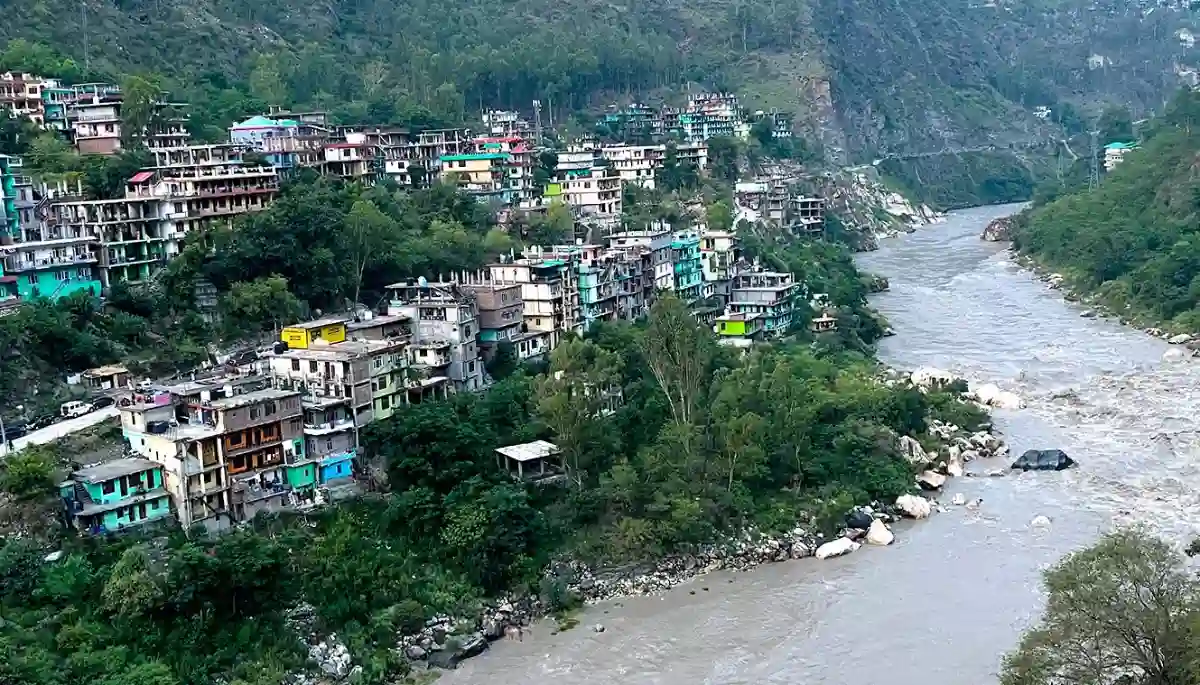
Once you climb across the bridge, you will come across another forest cover, and about an hour into walking, you will see your first apple orchards and some signs of civilization. The trail soon enters the Barua Village following a long descent into the village. From the heart of the village, the descent is even more rapid, with a meandering route. In another half an hour, the road will open to Barua Khas Road. The pickup here is scheduled at 1:00 PM and you will reach Shimla by 10:00 - 11:00 PM. You are recommended to make your hotel bookings accordingly.
Note:
- Keep a buffer day in your travel plan.
- If buffer day is not used in the travel then it can be used to Explore Shimla.
- Distance, Altitude, and Trekking hours are approximate and rounded off.
- Keep the original and copy of ID proof handy.
- Come one day early if planning to come by flight.
Day-1: Shimla to Janglik
- Altitude: 2,800 m/ 9,200 ft.
- Drive Distance: 160 km | 9-10 hr.
Day-2: Janglik to Dayara Thatch
- Altitude: 3,400 m/ 11,150 ft.
- Trek Distance: 6-7 km | 5-6 hr.
Day-3: Dayara Thatch to Litham
- Altitude: 3,600 m/ 11,800 ft.
- Trek Distance: 4-5 km | 3-4 hrs.
Day-4: Acclimatization day, visit to Chandranahan Lake
- Altitude: 4,023 m/ 13,200 ft.
- Trek Distance: 6 km Both side | 6-7 hr.
Day-5: Litham to Dhunda
- Altitude: 4,000 m/ 13,100 ft.
- Trek Distance: 4-5 km | 4-5 hrs.
Day-6: Dhunda to Munirang (River camp) via Buran Ghati Pass
- Munirang Campsite Altitude: 3,400 m/ 11,100 ft.
- Buran Ghatti Pass: 4,550 m/ 15,000 ft.
- Trek Distance: 8 km (10 - 11 hrs approx).
Day-7: Munirang to Barua village & Drive to Shimla
- Altitude: 2,300 m/ 7,700 ft.
- Trek Distance: 5-6 km | 2-3 hr.
Note:
- Keep a buffer day in your travel plan.
- If buffer day is not used in the travel then it can be used to Explore Shimla.
- Distance, Altitude, and Trekking hours are approximate and rounded off.
- Keep the original and copy of ID proof handy.
- Come one day early if planning to come by flight.
Buran Ghati Trek Graph
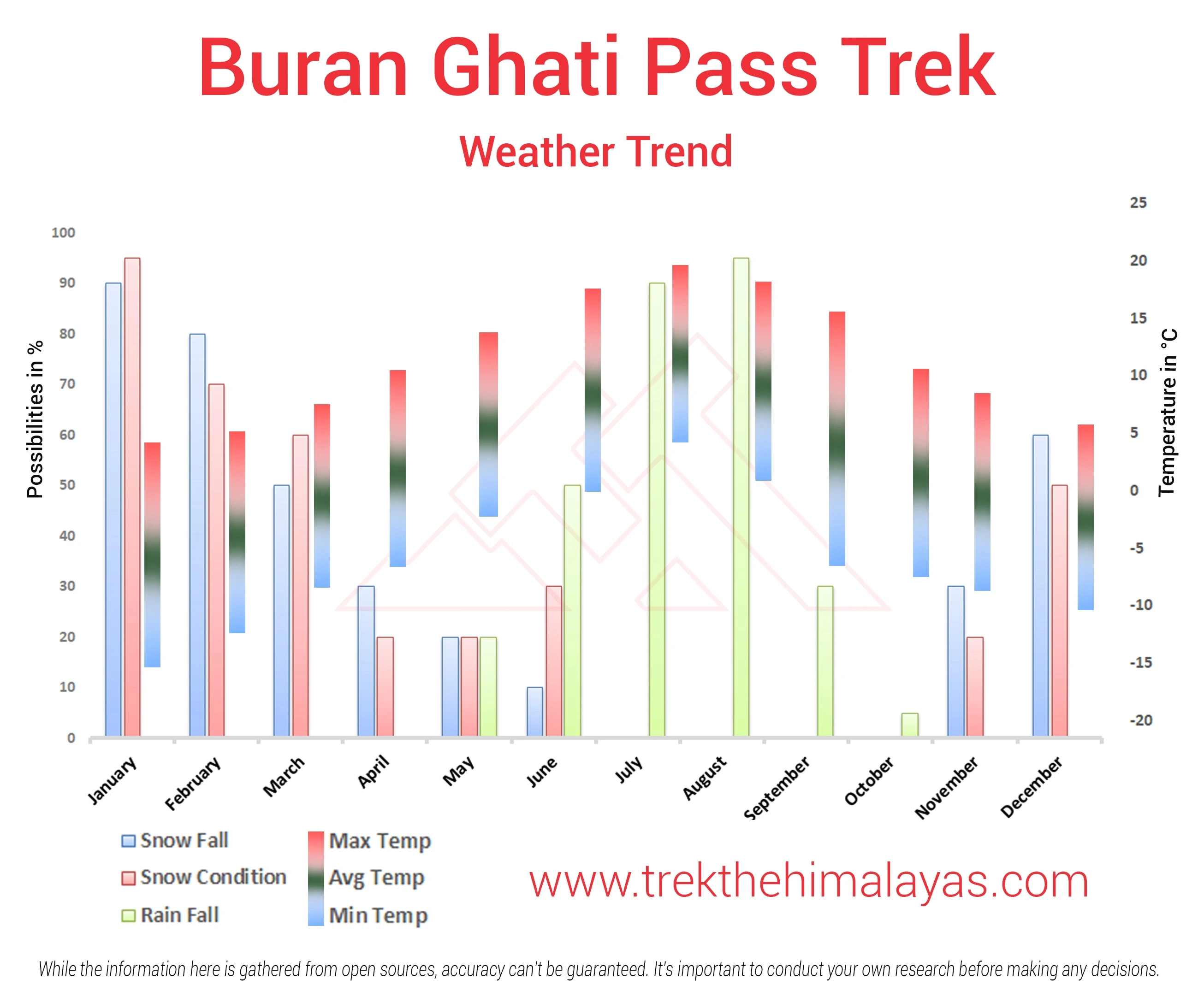
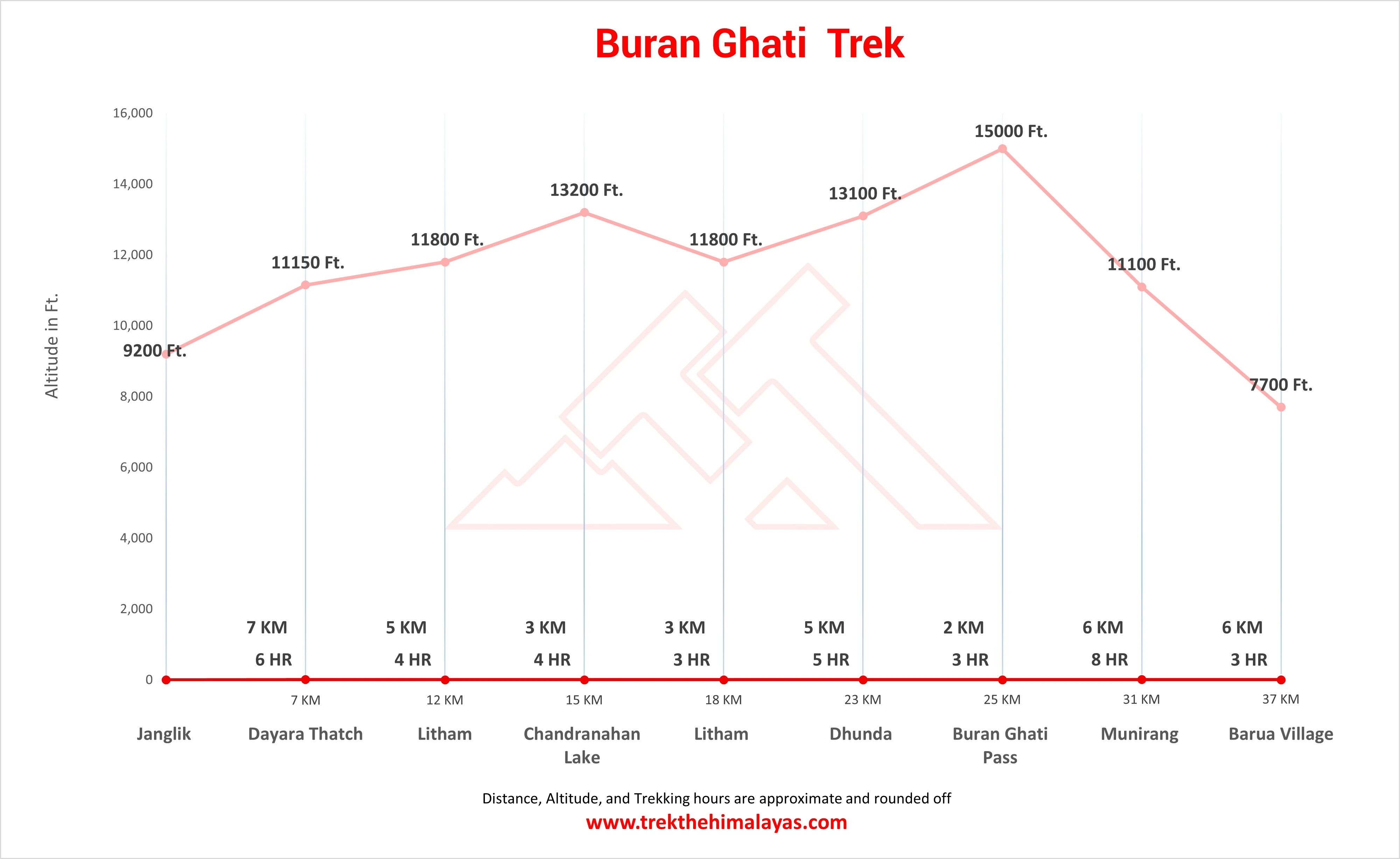
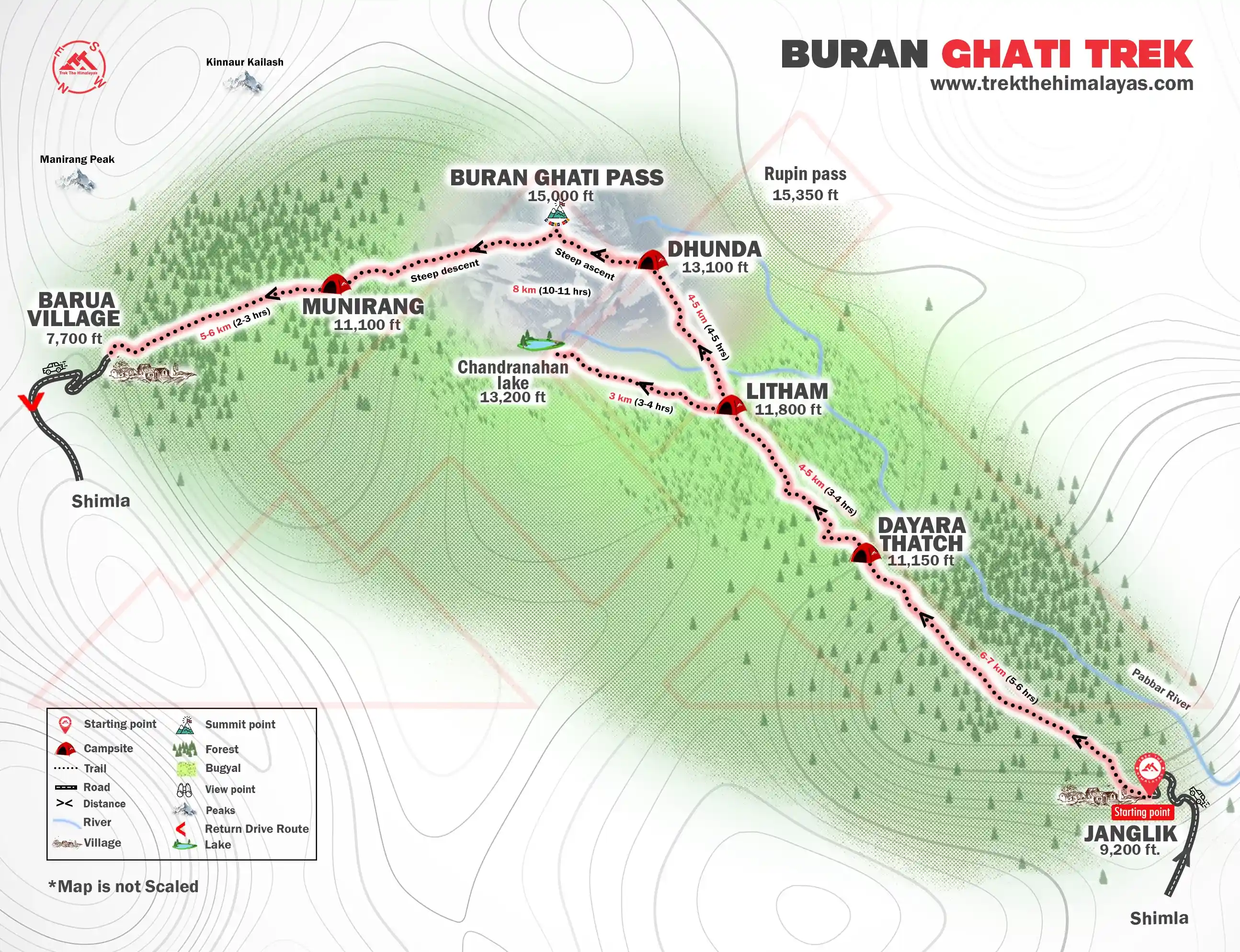
- Pulse rate at rest must be in between (60 to 100 beats per minute).
- Blood Pressure Reading must be in between (DIASTOLIC 75 – 85, SYSTOLIC 100 - 130 mm Hg).
- Respiratory rate at rest must be in between (12 to 20 breaths per minute).
- Should not have Liver and kidney issues.
- Should not have Diabetes Mellitus, Bronchial Asthma, Heart problems, Hypertension, etc.
- No pacemaker implant.
- People with Sinus issues, Epilepsy please contact to trek coordinator before booking the trek.
- If your BMI is not normal, Please contact our Trek coordinator before Trek booking.
Medical & Disclaimer Form (Mandatory Documents) Click here to download Medical & Disclaimer Form
Government employees can avail the benefit of Special Casual Leave (SCL) when they join us for a trekking expedition. As per Pay Commission guidelines, up to 30 days of Special Casual Leave can be availed in a calendar year for trekking or mountaineering expeditions conducted through a registered organisation.
Trek The Himalayas is a registered adventure tour operator with the Indian Mountaineering Foundation (IMF) and the Ministry of Tourism (MoT), making your trek eligible for SCL benefits.
To apply, email us at info@trekthehimalayas at least 20 days before the trek departure date, with the following details:
- Trek name and trek date
- Booking details
- Full name
- Designation
- Department and department address
This benefit is exclusive to Indian Government employees and is applicable only for treks within India.
- Junior trekkers (below 15 years) should have a company of parents/guardians.
- Trekkers between 15 to 18 years can come solo with the disclaimer form signed by parent/guardian.
- Medical & Disclaimer Form (Mandatory Documents) Click here to download Medical & Disclaimer Form
Since the inception of Trek The Himalayas, countless trekkers have chosen us to be a part of their trekking journey. Some experiences were learning moments, while many of you returned time and again, allowing us to be part of your most unforgettable adventures. Over the years, we have continuously evolved, improving our operations, and every detail that shapes your experience.
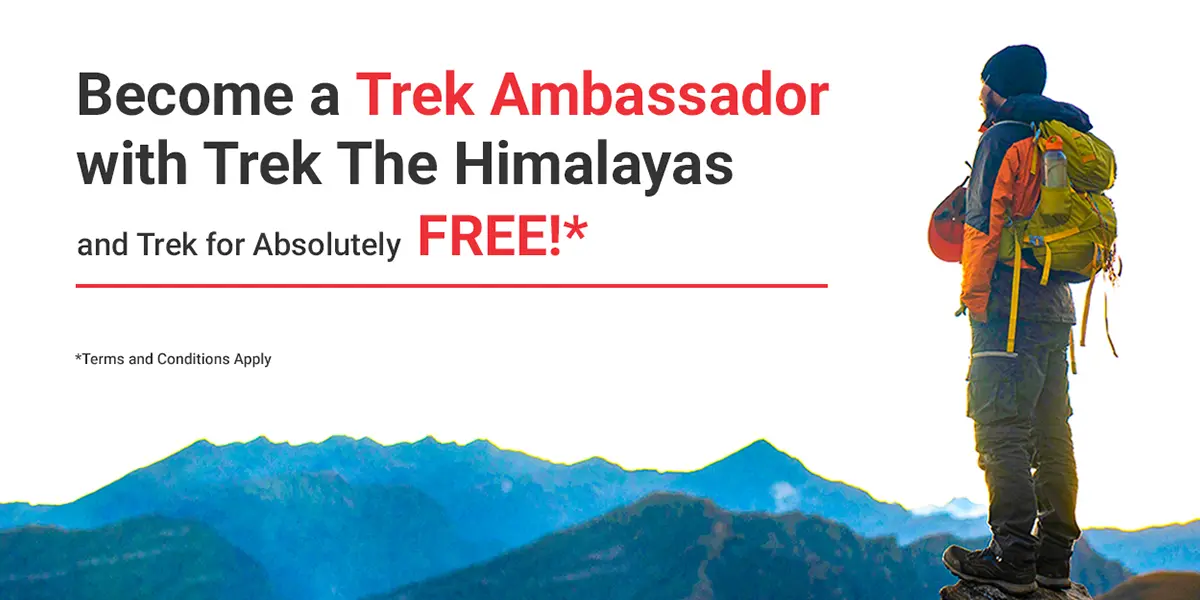
Through it all, you have shown us that we are not just another trekking company to you, we are family. Your trust, loyalty, and love mean more to us than words can express, and we cherish every step we have taken together in the mountains.
As a small way of giving back and saying thank you for choosing us again and again, we are excited to introduce something special: our heartfelt expression of gratitude to our valued and loyal trekkers.
We are launching two amazing policies to make your trekking journey even more exciting.
YES! Not one, but TWO unbelievable policies
Policy 1 : TTH Trek Ambassador Policy
In the TTH Trek Ambassador Policy, anyone who has completed four treks with us gets the fifth trek absolutely free. You can choose from a variety of treks that we offer in himalayan states of India including Ladakh, Uttarakhand, Himachal Pradesh, Sikkim and West Bengal. You just need to start creating your trek bucket list and we are here to help you accomplish it.
Thinking, “I have already done more than 6 treks with TTH, what about me?” In this case you automatically qualify for the policy and therefore, your next trek will be on us. In fact, for every 8 treks you complete, 2 treks are on us.
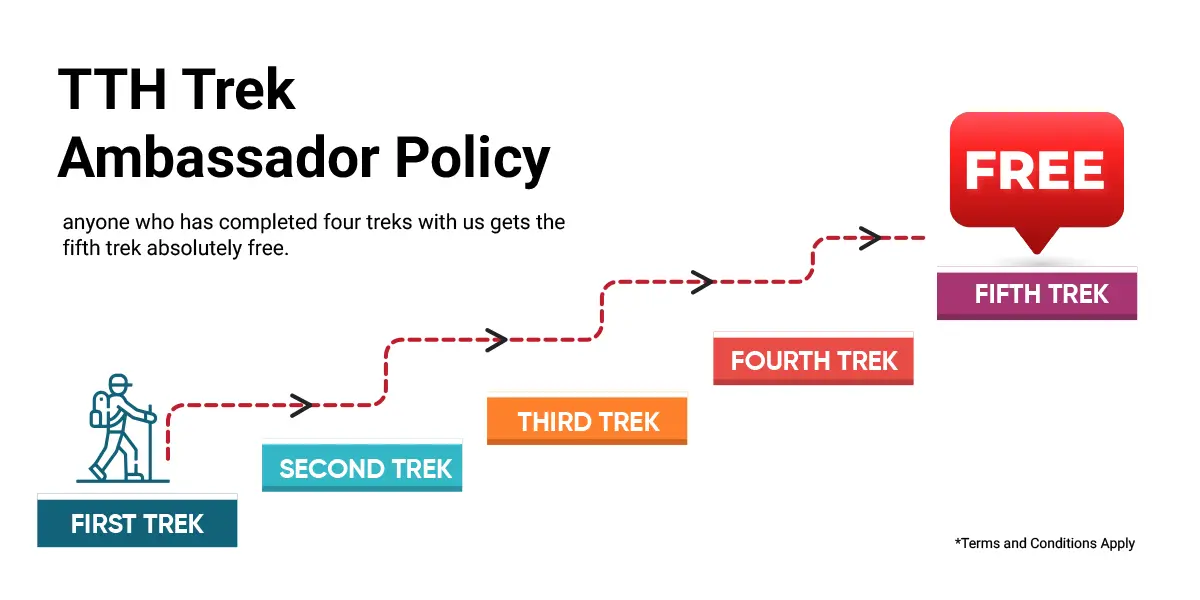
As Unbelievable as it Sounds, Your 5th Trek is Sponsored by Us - Choose any Trek You Love
Love the Chadar Trek? It could be free!
Your dream treks including Markha Valley, Bali Pass, Pin Bhaba Pass, or Lasermo La Trek (launching soon) can be yours at no cost under this policy.
Just like five stars make a perfect set, you are that fifth star for TTH. But this star does more than shine; it guides and inspires. You will share your tips, your stories, your experiences, and help new trekkers enjoy the journey as much as you do. That’s why this trek is special, and it’s your chance to be a TTH Trek Ambassador on the trail.
Being an avid trekker comes with excellent trekking knowledge and experience, and we would love you to share that and guide fellow trekkers along the way.
You will be introduced as our TTH Trek Ambassador to your fellow trekkers. Your experiences will glorify the shine of treks! And we can't wait, just to see how you make the journey just as beautiful as the Himalayan trails themselves!
What About Those Who are Just Getting Started?
Those who are just starting their trekking journey are also eligible for this policy, they just need to complete any four treks/expeditions with us (weekend treks, panch kedar excursion, and multi-sport adventures count too) and they will get the chance to become a TTH Trek Ambassador with their fifth trek absolutely free of cost.
Policy 2: Loyal Customer Policy
After you become a TTH Trek Ambassador with Trek The Himalayas, you will unlock our Loyal Customer Policy, a perk that keeps giving every time you share the joy of trekking.
Once you complete all four treks with TTH, you receive a unique referral code that you can share with your friends and family.
When someone books a trek using your code, you will receive trek points based on the difficulty level of the trek and the referred trekker will receive the same amount of discount while booking the trek. Here is the breakdown of the trek points and discount you and your friend will get.
- If the referred trek is an Easy trek, both of you will receive ₹500 as trek points and discount.
- For a Moderate or Moderate to Difficult trek, both will receive ₹700 as trek points and discount.
- For a Difficult trek, both will receive ₹1,000 as trek points and discount.
- For a Challenging trek, both will receive ₹1,500 as trek points and discount.
Kindly Note: 1 Trek Point = 1 Rupee
These trek points get added to your loyalty points balance and you can redeem these points while booking for your next trek. The more you refer, the more your balance grows.
For example:
If you collect 15,000 as your trek points, you can use them to book any trek within that value. As your balance grows, the possibilities expand and you could use your points for treks and expeditions of higher value anywhere in India, and abroad. Your loyalty points open the door to all kinds of trekking experiences in India and Internationally.
Another great part of this policy is its flexibility. You won’t believe it, but you can also transfer these loyalty points to anyone you like if you’re unable to use them yourself. You can either share or split them with friends or family.
You can also track your loyalty points balance anytime in your TTH dashboard, and we will also keep you updated through notifications whenever the trek points are added or redeemed.
TTH Trek Ambassador Policy FAQs
- What is this initiative all about?
- What if my upcoming trek is my fifth trek with Trek The Himalayas ?
- Can Chadar Trek be included as a free trek under this policy?
- Are weekend treks included in the count?
- I’ve already completed eight treks with TTH. Does this mean my ninth trek is also included?
- Why should I choose TTH over other organizations?
- If my child has completed four treks with TTH, can their Summer Camp be chosen as the fifth free trek?
- Which treks are eligible as free treks under the TTH Trek Ambassador Policy?
- Can I choose a Challenging grade as my free trek?
- How do I claim this benefit for my fifth trek?
- Do I need to make a payment while booking the fifth trek?
- If the trek is offered by TTH, why do I need to pay the amount upfront?
- Why does TTH follow a pay-and-return process?
- I already have multiple upcoming treks booked. Which one will be counted as my fifth trek?
- What if my four treks were registered using different email IDs?
- Can I choose international treks like Everest Base Camp or Kilimanjaro as my free fifth trek?
- Do repeat treks count toward my free fifth trek?
- Does the free trek cover things like insurance, transport, or extra charges?
- I’ve done some treks with other organizations. Do they count?
This initiative is our way of appreciating trekkers who continue to walk with TTH again and again. When you complete four treks with us, you reach an important milestone in your trekking journey. Your fifth trek is then offered by TTH as a gesture of appreciation. You will step in as a TTH Trek Ambassador, sharing your stories and inspiring others with your experience. Along with this, you also unlock Loyal Customer policy in which you can earn the trek points by sharing the referral code with your friends and family.
If your upcoming trek is your fifth trek with TTH, the trek fee for that trek will be completely waived. To ensure smooth planning, you need to register and make the full payment at the time of booking. Once you successfully complete the trek, TTH will refund the eligible trek fee within a week.
Please note that GST and trek insurance are fixed mandatory charges, so they will not be refunded. Any optional add-ons, like transport, gear rental, offloading, or special meals, are also outside the refund scope.
Yes, it absolutely can. And that’s what makes this policy special. If trekking in Ladakh has been your dream, this could be your moment. Iconic treks like Chadar Trek and Markha Valley Trek are available as options for your free fifth trek.
Of course! A trek is a trek, and all your TTH treks, including weekend or two-day treks count toward your free fifth trek.
Yes, and this is one of the nicest parts of the policy. The free trek benefit works in groups of four treks. After completing four treks, your fifth trek is free. If you have completed eight treks, the benefit comes again, and your ninth and tenth treks will also be free. In short,for every four treks completed with TTH, you earn free treks along the way. The more you trek, the more TTH gives back.
Trek The Himalayas offers a wide range of treks be it easy to moderate treks like Kedarkantha, Har Ki Doon, Ranthan Kharak or moderate to difficult treks like Bali Pass, Pin Bhabha Pass or Chadar. By the time you complete four treks in the Himalayas, you have already grown into an experienced trekker.
Naturally, you would now like to prefer to take a step up and choose a difficult trek as your fifth one. Here is where Trek The Himalayas stands out as it offers a variety of difficult treks. And luckily all of them are qualified as free treks under the TTH Trek Ambassador policy. With TTH, you get a variety of trek options to choose from. You can pick a tougher trail or go for an Easy or Moderate trek; the choice is yours.
Yes definitely, we’re happy to offer this. Young trekkers bring fresh energy and enthusiasm to the trail, which makes the journey even more special. If your child has completed four treks with TTH, they can choose a Summer Camp as their fifth free trek.
You’ll be happy to know that any himalayan trek from easy to difficult level can be chosen as your free trek. The best part is that treks like Chadar Trek, Markha Valley, and many other beautiful himalayan treks are included. You may also choose higher-grade treks such as Bali Pass or Pin Bhaba Pass as part of your free trek.
As a TTH Trek Ambassador, your role goes beyond just trekking. You become a mentor on the trail. Someone who guides and shares real experiences with fellow trekkers. After completing multiple treks with TTH, you bring valuable knowledge and perspective that naturally encourages others and adds energy to the group.
Your stories and practical tips help first-timers and intermediate trekkers feel more comfortable and motivated. This is where your experience shines and lifts the overall trekking spirit of the group.
Challenging and peak summit treks, however, follow a slightly different approach. These treks are designed for highly experienced trekkers and climbers, where every participant is already well-prepared and self-driven. In such settings, there is limited scope for peer mentorship, as the structure and demands of the trek are very specific.
That’s why challenging and peak summit treks are kept outside the free fifth trek option, not because they are out of reach, but because the Trek Ambassador role is best experienced on trails where your guidance, encouragement, and shared journey can add value to others.
To claim your free trek, please send an email to info@trekthehimalayas.com, and our team will take it forward from there.
Yes, you do. You need to pay the full amount at the time of booking, just like any regular trek. Once you successfully complete the trek, we process the return of the eligible trek fee within one week. This process helps us plan treks better and ensures that all participants are fully committed.
Each spot on a trek involves planning, logistics, and local arrangements. If someone cancels at the last moment, it directly affects the team and the opportunity for another trekker. Collecting the payment upfront helps us manage this responsibly. Once you complete the trek, the amount is returned as promised. If you cancel, the standard TTH cancellation policy applies.
To keep your trek planning smooth and fair, we collect the trek fee upfront. Last-minute cancellations can affect team arrangements and local logistics, so this pay-and-refund process keeps everything running smoothly while still giving you this special benefit fairly.
The trek that you actually complete as your fifth eligible trek will be considered under this initiative. Even if you have several treks booked in advance, the benefit applies to the trek that completes your fifth-trek milestone.
All four treks must be registered under a single email ID. This helps us confirm that the same person has completed all four treks with TTH. Please ensure your records are linked to one email ID.
The free fifth trek is only valid for treks within India. International treks, including those in Nepal or other countries, don’t qualify as your free trek. However, any international trek you’ve completed does count toward your total number of treks with TTH.
Each unique trek you complete adds to your total. If you repeat a trek you’ve already done, it won’t be counted toward your free fifth trek.
The free trek includes only the trek fee itself. Any extra costs like trek insurance, transport, gear rentals, offloading, or special meals are not included and will need to be paid separately.
To be eligible for the free fifth trek, we count only treks you’ve completed with TTH. But don’t worry, even if you’ve done weekend treks, pilgrimages, or international treks with us, they all contribute to your count. By the time you’re eligible, you’ve likely completed more than four treks with TTH anyway.
Loyal Customer Policy FAQs
- What is the Loyal Customer Policy?
- When do I become eligible for this policy?
- What is a referral code and how do I get it?
- Is there a limit to how many points I can earn?
- What is the minimum number of trek points I can redeem under this policy?
- Can I use these trek points for international treks?
- Can I transfer my trek points to someone else?
- Where can I check my trek points balance?
- Can I share my referral code with someone who has already trekked with TTH?
- What is the validity of the Loyalty points?
The Loyal Customer Policy is a special perk for TTH Trek Ambassadors. After completing four treks with Trek The Himalayas, you receive a referral code. When someone books a trek using your code, both you and the referred trekker earn trek points and discounts based on the difficulty level of the trek.
You become eligible for the Loyal Customer Policy after completing four treks with Trek The Himalayas and becoming a TTH Trek Ambassador. Make sure all your four treks must be unique.
A referral code is a unique code provided to you once you become a TTH Trek Ambassador. You can share this code with friends and family. When they use it while booking a trek, both of you receive trek points and discounts.
There is no limit to the number of trek points you can earn. The more you refer, the more points get added to your loyalty points balance, which you can redeem while booking your future treks.
There is no minimum limit for redeeming your trek points under this policy. You can start redeeming your rewards with as little as one trek point. Every trek point you earn holds value, giving you complete flexibility to use your points whenever and however you choose without waiting to accumulate a fixed number.
Yes! One of the best parts of the Loyal Customer Policy is that you can use your trek points to book any trek with TTH, including international treks.
This is the flexibility of the policy. You can easily transfer your points to friends and family, and they can use them for their own trek planning with TTH. Even if you want to split the points and use them with your friends, you can do that too and enjoy trekking together!
You can easily track your trek points anytime in your TTH dashboard. Also, we’ll keep you updated with notifications whenever points are added or redeemed, so you always know your balance.
No. Referrals must be for completely new members. Anyone who has already registered or trekked with TTH earlier will not be counted as a valid referral.
The Loyalty Customer accumulated points is valid for two years from the date it is issued.
Important Links
- Mandatory Documents to Bring on A Trek Click Here.
- How to pay Add-ons, Submit Medical Forms, and Dietary Preferences Click Here to watch Video
How To Reach
It is essential for everyone to arrive at Shimla (05:30 am)
Meeting
Place: Shimla Old Bus Stand.
Once you have reached Shimla, TTH will manage the rest of your travel arrangements, if you have opted for TTH's pick-up service, you can select this option during the booking process by adding it as an add-on (book it at least 10 days before trek date)
It is advisable to reach Shimla a day before to avoid any kind of delays.
Options to reach Shimla:
First, you can arrive at Chandigarh, Delhi, Kalka, or Shimla airport. The journey from these locations to Shimla is explained below.
1. Take overnight bus to Shimla from Delhi or Chandigarh, taking a bus from Chandigarh is the most ideal option.
-Chandigarh to Shimla Bus Stand : 120 km | 4 hr.
-Delhi to Shimla Bus Stand : 350 km | 10 hr.
( We always recommend going for the govt. Buses over the private ones outside the bus station as based on the experience we have found that there are very high chances of delay involved with private buses. Also, govt. Buses are always more reliable. Whichever bus you choose, just make sure to reach Shimla at least by 05:30 am. )
2. Take a Train to Kalka and drive to Shimla. One can take the pleasure of a toy train, If you're arriving by Train, then come one day in advance.
3. Take a flight to Shimla airport (Jubbarhatti airport) (22 km, 50 min). If you're arriving by air, then come one day in advance.
The designated drop-off point is Shimla old bus stand.
Reach Shimla by 11:00 pm to 1:00 am, Please arrange your hotel and make further bookings in Shimla accordingly.
It's highly advisable to keep a buffer day in your travel plan. If the buffer day is not needed, it can be used to explore Shimla.
( If you prefer to travel independently, you can either take a government bus or book a private cab. Your trek coordinator will provide guidance on how to arrange for the bus or cab booking. )
TTH offers comfortable transportation through Tempo Traveler, Bolero, or equivalent vehicles. If you wish to upgrade your mode of transportation, please contact your trek coordinator for further assistance.
.webp)
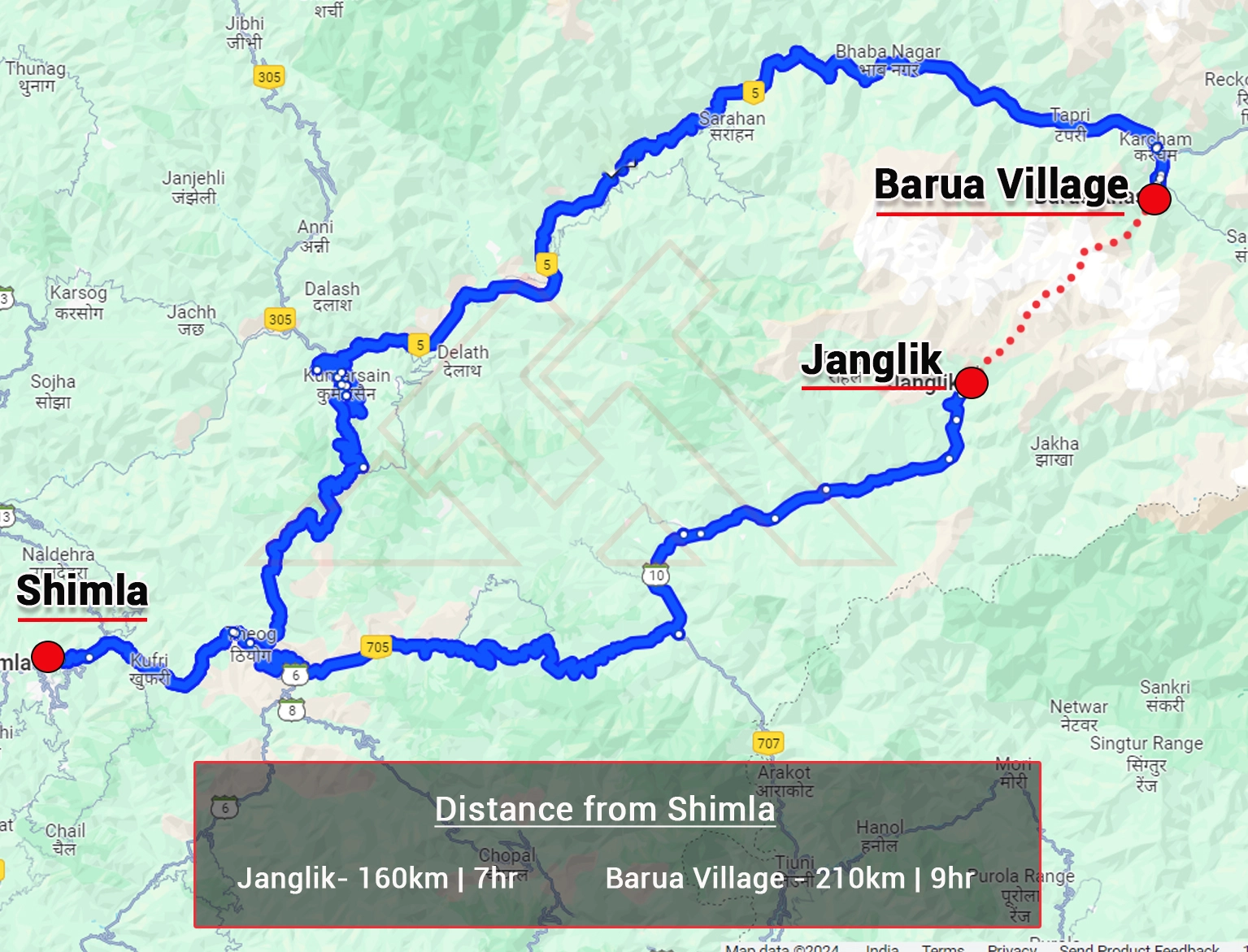
Cost Terms
Inclusion
1. Accommodation (as per the itinerary):
- Homestay on Day 1.
- Camping during the trek (Day 2 to Day 6).
2. Meals (Veg + Egg):
- All meals are from Janglik to Barua village .
- Day 1 Dinner to Day 7 Breakfast.
3. Support:
- 1 Versatile base camp manager who handles communication and deploys extra manpower in emergencies.
- 1 Mountaineering & First aid qualified professional trek leader.
- 1 Experienced high altitude chef.
- Local experienced guides (Number of guides depending on the group size).
- Enough support staff.
4. Trek equipment:
- Sleeping bag, Sleeping liners (if required), Mattress, Utensils.
- 3 men all season trekker tent (twin sharing), Kitchen & Dining tent, Toilet tent.
- Camping stool, Walkie talkie.
- Ropes, Helmet, Ice axe, Harness, Gaiters & cramponsup to (if required).
5. First aid:
- Medical kit, Stretcher, Oxygen cylinder, Blood pressure monitor, Oximeter, Stethoscope.
6. Transportation (as per the itinerary):
- Shimla to Janglik & Barua village to Shimla (If booked through TTH, available upon booking in add-ons).
7. Cloakroom service at Shimla.
8. Mules/porters to carry the central luggage.
9. All necessary permits and entry fees, Upto the amount charged for Indian.
10. Services from Janglik to Barua village.
11. Trek completion certificate from TTH.
Exclusion
- Insurance (For non-Indian Nationals, NRI or OCI card holders).
- Food during the transit.
- Any kind of personal expenses.
- Mule or porter to carry personal luggage.
- Emergency evacuation, hospitalization charge, etc.
- Any extra costs incurred due to extension/change of the itinerary due to natural calamities roadblocks, vehicle breakdown, etc. factors beyond our control
- Transportation (Shimla to Janglik & Barua village to Shimla, if not booked through TTH).
- Anything not specifically mentioned under the head Inclusion.
Things can be provided on demand and availability (participant has to pay extra for these things).
1- Satellite phone/set phone - a type of mobile phone that connects via radio links via satellites orbiting the Earth instead of terrestrial cell sites like cell phones. Therefore, they can operate in most geographic locations on the Earth's surface.
2- Gamow/PAC HAPO Bag (Portable Hyperbaric Bag) - is a unique, portable hyperbaric chamber for the treatment of acute mountain sickness (AMS), also known as altitude sickness.
3- AEDs (Automated External Defibrillators) - are portable life-saving devices designed to treat people experiencing sudden cardiac arrest, a medical condition in which the heart stops beating suddenly and unexpectedly.
Cancellation Terms
To request a cancellation, please email us at info@trekthehimalayas.com using your registered email ID.
Cancellations prior to 25 days from the start of the Trip
Refund Options
- 5% deduction of trek fee
- 100% trek fee cash voucher for any trip till one year
- Transfer your trek (any trek, any date) to your friend
Cancellation between 24 days and 15 days to the start of the Trip
Refund Options
- 30% deduction of trek fee
- 100% trek fee cash voucher for same trip till one year
- 85% trek fee cash voucher for any trip till one year
- Transfer your trek (same trek, any date) to your friend
Cancellation between 14 days and 10 days to the start of the Trip
Refund Options
- 50% deduction of trek fee
- 80% trek fee cash voucher for same trip till one year
- 70% trek fee cash voucher for any trip till one year
- Book the same trek, in the same season, with any other batch
- Transfer your trek (same trek, any date) to your friend
Cancellation less than 9 days to the start of the trek.
Refund Options
- No cash refund
- 20% trek fee cash voucher for the same trip till one year
- 10% trek fee cash voucher for any trip till one year
- Transfer your trek (same trek, same date) to your friend
- To reschedule a trek (same trek only), a 30 % rescheduling fee of the trek cost will apply.
Cancellation Policy (Emergency Cases):
In case of a death in the immediate family (parents, siblings, spouse, children) or if the trekker is hospitalized (min. 48 hours) or suffers a fracture (leg/arm) within a week before the trek, even if canceled a day before:
90% trek fee refund in cash & 10% as a voucher (valid for 1 year, for any India trek).
Valid documents required. We’re here to support you during tough times.
Note:
- Change of trek batch is dependent on the availability of seats in the batch
- In case of transferring a trek to a friend, he/she should satisfy all the mandatory requirements put forward by TTH
- TTH holds the right to change/cancel the policies, without prior notice
Booking and Payments
- The Participant is responsible for verifying the accuracy of all details, including Trip dates and personal documentation, at the time of booking.
- Payments must be made in accordance with the timelines and instructions provided by TTH. Late payments may result in cancellation of booking without refund.
- In the event of a cash refund, only the portion of the payment made in cash shall be eligible for refund in cash. Any booking made using voucher, discounts, promotional codes, or through any non-cash mode of payment shall not be eligible for a cash refund under any circumstances.
- Refunds, if applicable, shall be processed within 15–30 working days of confirmation.
- All add-on bookings are subject to the respective add-on cancellation policy, and refunds will be processed accordingly.
- Voucher Terms
- This is a non-transferable voucher
- The voucher cannot be merged with any other offer of Trek The Himalayas
- The voucher is valid for Trek booked directly with Trek The Himalayas in India
- To avail the voucher please use your register phone number or e-mail id
- All the other Terms of booking a trek with Trek The Himalayas are applicable to the voucher
Itinerary and Modifications
- TTH reserves the right to modify, shorten, or cancel any part of the Trip due to transportation delays, weather, health emergencies, or other unforeseen circumstances including Force Majeure.
Cancellations and Refunds
- No refunds or vouchers, partial or otherwise, shall be provided for voluntary withdrawal, non-utilisation of services, or removal from the Trip.
- If TTH cancels the Trip before arrival at the designated pick-up point due to unforeseen circumstances or Force Majeure, the Participant may choose from:
- An alternate Trip/date.
- A credit voucher valid for one (1) year.
- Transfer to another Trip, with cost differences payable by the Participant.
- If the Trip is abandoned post-arrival at the designated pick-up point, no cash refund or voucher shall be issued. The Trek Again Policy may apply at TTH’s discretion.
- TTH shall not be liable for any associated travel costs such as flights, accommodation, or visa fees.
Force Majeure
- Events beyond its control including but not limited to earthquakes, landslides, strikes, curfews, war, pandemic, government restrictions, heavy rainfall or snowfall, windstorms, road blockages, trail disruption, or withdrawal of permits, TTH shall not be held liable for any cancellation, delay, or service modification caused by Force Majeure.
Trek Essentials
Rent EquipmentPDF Of Trek Essential Download
| Backpack with rain cover | (50 - 60 ltr) with comfortable shoulder straps |
| Day pack with rain cover | 20 - 30 ltr (If off-load opted) |
| Walking stick | Advisable (At least one) |
| Water Bottle / Hydration pack | 2 bottles of one liter each, People who use hydration pack 1 hydration pack and 1 bottle of one liter, Carry at least one thermos flask. |
| Small size tiffin/lunch box | 1 Nos |
| Snacks | Energy bars, dry fruits, electral/ors |
| Personal Medical Kit | Consult your doctor |
| T-Shirt (Synthetic quick dry) | 1 Full & 2 Half sleeves |
| Fleece T-shirt | 1 Nos |
| Fleece jacket | 1 Nos |
| Windproof Jacket | 1 Nos |
| Down feather / Hollow jacket | 1 Nos |
| Thermal inner (Upper and Lower) | 1 Pair |
| Trek Pant (Synthetic quick dry) | 2 Nos |
| Fleece Pant | 1 Nos |
| Waterproof gloves | 1 Pair |
| Fleece / woollen gloves | 1 Pair |
| Poncho / waterproof Jacket and pant | 1 Nos |
| Sunscreen | 1 Nos |
| Moisturiser | 1 Nos |
| Chap-stick / Lip balm | 1 Nos |
| Toothbrush and toothpaste | 1 Nos |
| Toilet paper & Wipes | 1 Nos |
| Soap / hand sanitizers | 1 Nos |
| Antibacterial powder | 1 Nos |
| Quick dry towel | 1 Nos |
| Head torch | 1 Nos. (Avoid Hand torch) |
| Sun Cap | 1 Nos |
| Woolen cap | 1 Nos. |
| Balaclava | 1 Nos. |
| Buff / Neck-gaiters | 1 Synthetic & 1 Woollen |
| Sunglasses | UV with dark side cover, People who wear spectacles - (A)- Use contact lenses | (B)- Photo chromatic glasses |
| Trekking shoes | 1 Pair (Water-resistant, high ankle, good grip) |
| Floaters / flip-flops | 1 Pair |
| Cotton socks | 6 pairs |
| Woollen socks | 1 pairs |
| Gaiters | 1 Pair (TTH provides when required) |
| Micro spikes | 1 Pair (TTH provides when required) |
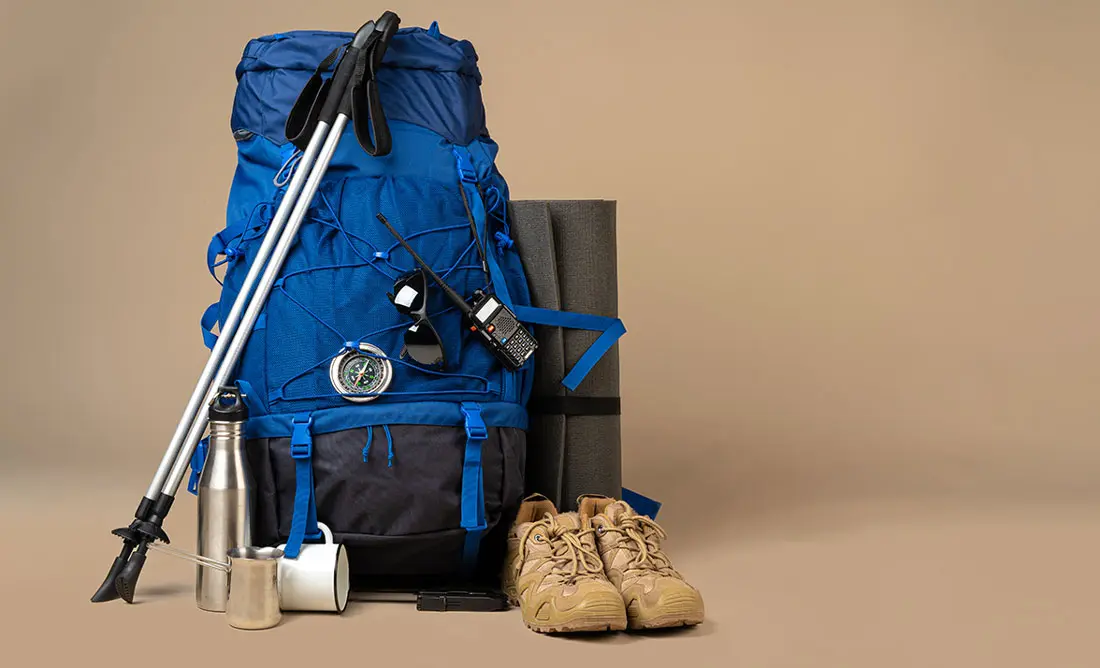
Frequently Asked Questions(FAQ)
To register with TTH, visit our website - www.trekthehimalayas.com and create your account. To create your account you will need to use your email address and fill in all the details, set your unique password and your account is ready to use.
- To book a trek with TTH, you first need to register with us and create an account.
- Choose the trek that you want to do and click on available dates.
- You will land at the login page, fill in the required details.
- Add Participants, choose add-on services click on the Pay now button, choose your preferred payment method, and make the payment. TTH accepts multiple payment options, including credit/debit cards, net banking, and UPI.
- You will receive a confirmation email from TTH with all the necessary details about the trek, including the meeting point, transportation, accommodation, and other important instructions.
- Click Here to watch Video
please send an email to us at info@trekthehimalayas.com or reach out to the numbers provided in the Help and Support section of your Trek Page. We will ensure that your issue is promptly resolved.
To book services such as off-load luggage and transportation, you can find them listed as add-ons. These additional services can be booked at the time of your initial booking. If you miss booking add-ons during the initial reservation, you can log in anytime and easily book 4 days before the departure date add-ons through the platform.
If you have booked the wrong trek or selected the wrong date, don’t worry! You can contact us at +91 9368882322 (Monday to Saturday, 10 AM to 10 PM) or email us at info@trekthehimalayas.com. You can also discuss this with your trek coordinator. Please make sure to inform us at least 10 days before the departure of your trek. Only then can we help you reschedule or arrange another trek for you.
We recommend visiting our "Suggest Me a Trek" page. By filling out the form, our experts will contact you with the best possible trek options based on your preferences and experience level. Alternatively, you can reach out to us via email at info@trekthehimalayas.com or give us a call using the numbers provided on our website for personalized assistance and recommendations.
Family treks differ from regular treks by focusing on ease of difficulty, offering shorter durations for younger participants, Kid-friendly and easily digestible foods, child-friendly activities, maintaining a higher guide ratio for diverse age groups, and implementing additional safety measures for families.
Family Trek with Kids recommendation Only Dayara Bugyal and Chopta Chandrashila Trek.
Minimum age for TTH treks is typically 7 years, though this may vary depending on the specific trek.
Yes, you can take a kids to a high-altitude trek with a parent. Discuss with a trek expert before booking a trek.
- Junior trekkers (below 15 years) should have a company of parents/guardians.
- Trekkers between 15 to 18 years can come solo with the disclaimer form signed by parent/guardian.
- Medical & Disclaimer Form (Mandatory Documents) Click here to download medical and disclaimer form
Physical Fitness: Ensure your child is physically fit. Engage them in regular exercise, outdoor activities, and hikes to build stamina and endurance. Hydration: Emphasize the importance of staying hydrated at high altitudes. Encourage your child to drink water regularly, even if they don't feel thirsty. Proper Nutrition: Provide a well-balanced diet with sufficient carbohydrates for energy and foods rich in iron to prevent altitude sickness. Adequate Sleep: Ensure your child gets enough sleep in the days leading up to the trek. Quality rest is crucial for altitude adaptation. Educate on Altitude Sickness: Teach your child about the symptoms of altitude sickness, such as headache, nausea, and dizziness. Encourage them to communicate any discomfort immediately. Appropriate Clothing and Gear: Dress your child in layers to adjust to changing temperatures. Ensure they have appropriate trekking gear, including sturdy footwear. Positive Mindset: Foster a positive mindset. Encourage your child, and let them know it's okay to take breaks when needed. Medical Check-Up: Schedule a medical check-up before the trek to ensure your child is fit for high-altitude activities. Consult with a healthcare professional about any potential health concerns.
TTH takes special care to provide wholesome and nutritious food for children on treks. Here are some of the foods that are typically served for children:
Breakfast: For breakfast, TTH serves a variety of options like porridge, cornflakes, bread, butter, jam, honey, boiled eggs, omelettes, and pancakes. Children can choose from these options to fuel themselves for the day's trek.
Lunch: For lunch, TTH serves lunch which includes rotis, vegetables, rice, dal, and salad. The rotis are usually made fresh on the trek and are a good source of carbohydrates. The dal and vegetables provide protein and other essential nutrients.
Snacks: TTH provides healthy snacks like fresh fruits, dry fruits, energy bars, cookies, and biscuits to keep the children energized throughout the day.
Dinner: For dinner, TTH serves a hot and wholesome meal which includes soup, rice, dal, vegetables, and a non-vegetarian dish (if requested in advance). Children can also choose from a variety of desserts like custard, jelly, and fruit salad.
Dietary requirements: If a child has any special dietary requirements, TTH can cater to those needs as well. For example, if a child is lactose intolerant or allergic to nuts, the kitchen staff can make arrangements to accommodate those requirements.
Choosing the right trek for a beginner can be a bit overwhelming as there are many factors to consider such as distance, elevation gain, terrain difficulty, weather, and time of year. Here are some tips that can help you choose the right trek for a beginner:
1. Determine fitness level: Assess the fitness level of the beginner to understand their physical capabilities. This will help you select a trek that is challenging but not too difficult.
2. Choose a well-traveled trail: A well-traveled trail will have more amenities such as signposts, water stations, and shelter. It is also safer as there will be other hikers on the trail.
3. Consider the length of the trek: For beginners, it is recommended to start with a shorter trek that can be completed in a day or two. This will help them get acclimatized to trekking and build their confidence.
4. Look for gradual elevation gain: Choose a trek with a gradual elevation gain rather than steep ascents. This will make the trek easier and more enjoyable.
5. Check the weather: Check the weather forecast before selecting a trek. Avoid treks during the monsoon season or winter when the trails can be slippery or dangerous.
6. Research the trail: Read about the trail to get an idea of the terrain, altitude, and difficulty level. This will help you select a trek that is suitable for the beginner.
7. Consult with an expert: If you are unsure about which trek to choose, consult our trek expert Mr. Nitin (+91 70600 59773) between 10 AM to 6 PM (Tuesday - Friday). Mr. Nitin will provide you valuable advice and guidance.
Overall, it is important to choose a trek that is enjoyable, challenging but not too difficult, and suitable for the beginner's fitness level and experience.
It is not recommended for a beginner to choose a difficult Himalayan trek. Trekking in the Himalayas can be physically and mentally challenging, especially if you are not used to the high altitude, steep slopes, and rugged terrain. Choosing a difficult trek without the proper experience, fitness level, and preparation can be dangerous and put you at risk of altitude sickness, injury, and other hazards.
If you are a beginner, it is recommended to start with an easier trek and gradually build up your skills and experience. This will help you understand the challenges of trekking in the Himalayas, and also prepare you physically and mentally for a more difficult trek in the future. It is also important to choose a trek that matches your fitness level, experience, and interest.
There is no specific age limit for a beginner trekker. However, it is important to consider your physical fitness, health condition, and personal interests before embarking on a trek. Trekking in the Himalayas can be physically and mentally demanding, and requires a certain level of physical fitness and endurance.
If you have any pre-existing medical conditions or are above a certain age, it is recommended to consult with a doctor before embarking on a trek. It is also important to listen to your body and take breaks as needed during the trek to prevent exhaustion or injury.
We recommend visiting our "Suggest Me a Trek" page. By filling out the form, our experts will contact you with the best possible trek options based on your preferences and experience level. Alternatively, you can reach out to us via email at info@trekthehimalayas.com or give us a call using the numbers provided on our website for personalized assistance and recommendations.
Yes, you can join the trek. We have fixed departure groups where you can simply book your trek and we will take care of curating a group.
Before you start the trek, it is recommended that you make all the necessary phone calls as during the trek you may or may not receive network coverage, once you come back to the Base Camp, you can reconnect with your family via phone once again. You can share your trek coordinator contact detail with your family members to get the latest updates about your trek batch.
At TTH, we provide wholesome and nutritious meals during the trek. The food is vegetarian and includes a variety of dishes such as rice, dal, vegetables, chapati, paratha, pasta, noodles, and soup. We also offer snacks such as biscuits, and salty, and dry fruits during the trek. Special dietary requirements such as vegan, gluten-free, or Jain food can also be arranged if informed in advance.
If you are allergic to some foods, you need to let us know in advance so that we can make arrangements accordingly.
TTH is a trekking company that prioritizes the safety of all its participants, including women trekkers. We have a comprehensive safety system in place, which includes a dedicated team of experienced and trained trek leaders and support staff who are equipped to handle emergency situations and provide first aid.
TTH also takes specific measures to ensure the safety and comfort of women trekkers. They have a separate tent accommodation for women trekkers, female trek leaders, and support staff. They also provide separate toilet facilities for women and encourage a safe and respectful environment for all trekkers.
Moreover, TTH has a strict policy against any kind of harassment and has a zero-tolerance policy towards such incidents. They have a designated Internal Complaints Committee (ICC) to investigate and address any complaints related to harassment or misconduct. Overall, TTH has a good reputation for safety and responsible trekking practices, and women can feel comfortable and safe while trekking with them.
In case you are the only women in the group, we provide a single sleeping arrangement. Also, during the trek, the trek leader will always remain by your side to provide optimum safety and reassurance.
You can reach out to the trek coordinator to inquire about the number of female trekkers and their respective states who have booked the trek. Please note that the trek coordinator cannot disclose personal details of any trekker. Once you've confirmed your booking, a WhatsApp Group will be created for all the trekkers in your batch. This allows you to connect with fellow trekkers before the trek begins.
While many of our treks are led by female trek leaders, however, it is not possible to know which trek leader is assigned to which group. But nonetheless, whether the trek leader is male or female you can be completely assured of your safety and security with us.
Yes, it is possible to trek with periods. However, it is important to take some extra precautions and preparations to ensure a comfortable and safe trekking experience. Here are some tips that can help you trek during your period:
1. Use menstrual hygiene products that you are comfortable with, such as tampons, pads, or menstrual cups. It is recommended to carry enough supplies for the entire duration of the trek.
2. Pack wet wipes, hand sanitizer, and plastic bags to dispose of used hygiene products.
3. Wear comfortable and breathable clothing that allows for easy movement and reduces friction. Avoid wearing tight or restrictive clothing that can cause discomfort.
4. Carry pain relief medication, such as ibuprofen or acetaminophen, in case of menstrual cramps.
5. Stay hydrated and maintain a balanced diet to support your energy levels and overall health.
6. Take breaks as needed and listen to your body. If you feel uncomfortable or experience any unusual symptoms, seek medical attention immediately. It is also recommended to consult with a doctor before going on a trek during your period, especially if you have a pre-existing medical condition or are taking medication.
By taking necessary precautions and being prepared, you can have a safe and comfortable trekking experience even during your period. We provide proper disposal facilities for sanitary pad disposal during the trek.
We offer three person tents with twin-sharing for optimum comfort. A woman trekker will share a tent with another woman trekker and if you are the only woman in the group, you will be given a single accommodation for your comfort and privacy.
Yes, we do provide gears on rent. You can book it using you TTH account directly.
Mountaineering qualified Experienced and first aid certified Trek Leader, First Aid Certify local guide, Cook, helpers and supporting staff.
People suffering from Bronchitis, Asthma, High blood pressure, Epilepsy (got faints), TB , Heart problem or on higher BMI side are strictly not allowed to go on any Himalayan trek. Apart from this if you had any medical history, please let us know.
No. Alcohol and smoking isn’t allowed while on trek. It is totally misconception that it will keep you warm. Your body need to acclimatize properly and for that eat properly and drink enough water; these things will keep you warm.
Toilet tents provide a convenient solution for answering nature's call in the great outdoors. Dry toilets, in particular, offer a highly sanitary approach. By digging a pit and utilizing mud and a shovel, you can easily cover up your waste. This method ensures cleanliness and hygiene while camping or exploring in the forest.
Remember to pack essential toiletries to complete your outdoor bathroom kit and maintain proper personal hygiene during your adventures. With these practices in place, you can enjoy nature while also respecting it.
Layer Up From Head To Toe
Eat Full Meals, never sleep empty stomach
You can keep warmee (if you’re more susceptible to cold).
Use sleeping bag in right way and don’t leave free space in sleeping bag.
For upper body
– Thermal layer
– T-shirt (full-sleeves)
– Fleece T-shirt (for extreme colds)
– Fleece layer
– Thick Jacket/Down Jacket
– Waterproof or Windproof layer (outermost layer, when it is snowing or raining)
- For Lower Body
– Thermal layer
– Hiking pants (normal) or Winter hiking pants
Based on how warm you feel you can skip any of the above layers. Your outer later should be windproof since it is windy at high altitude.
The idea behind layering is that the more insulation you have the less cold you feel, and instead of wearing a very thick jacket if you wear multiple layers, your body will be better insulated against the cold.
Yes, we provide micro spikes and gaiters, if required.
Mandatory documents: 2 xerox of ID having address (addhar card/driving license), 2 Passport size photographs, hard copy Medical form signed & sealed by doctor, disclaimer form sign by trekker and high altitude insurance.
No. We don’t but we can suggest you good hotel/Stay nearby pick up location.
Yes, trekker must carry 2 water bottles 1 litre each so they can refill it at campsite for drinking and keep themselves hydrate.
You should buy shoes which has these three features –Good grip, Ankle Support and additional water resistant layers. Generally, we advise Quechua Trek 100, MH 500 and MH 100.
No one is forced to go on. There is always enough staff to split the party according to need and regroup later at the camp. Most people have no trouble reaching the highest campsite. If some members decide not to climb the final distance they can wait for the climbers to come back down the same way or take a lateral path to the descent route.
The best time to do the Buran Ghati trek is during the months of Summer and Autumn. Specifically in the months of May, June, September, and October. During these months, the weather is typically clear, with pleasant daytime temperatures and cool nights, so you can enjoy your trek. During these specific months, the snow is also very less, making the trails more accessible. The landscapes are also beautiful with blooming flowers and green meadows.
The Buran Ghati Trek begins from the Janglik village, which is around 9-10 hours drive from Shimla. This serene village in the Himachal Pradesh region is a perfect place to begin your trek from.
The Buran Ghati Pass is at an altitude of 15,000 feet. Being at the pass, trekkers get an amazing view of the Kinner Kailash peaks, which is also the most stunning sight during the Buran Ghati pass trek. The majestic peaks offer a stunning backdrop and are often considered the highlight of this trek, making the ascent to the pass all the more worth it.
The Buran Ghati Trek is considered a moderate to difficult grade trek. The steep ascents, high altitudes, and unpredictable weather conditions add challenges to the trek. The terrain can be quite demanding, and trekkers need to be prepared for tough conditions as they climb through dense forests, snowfields, and rocky paths. The trek also requires a good level of physical fitness and mental preparation.
Buran Ghati trek spans upto 7 days.
The total trekking distance during the Buran Ghati trek is around 37 kilometers.
You should buy shoes which have these three features –Good grip, Ankle Support and waterproof. Generally, we advise Quechua Trek 100, MH 500 and MH 100.
Yes, Trek The Himalayas will provide sleeping bags, tents, and mattresses to every trekker. It is among the central equipment.
Yes, carrying a trekking pole is highly recommended for the Buran Ghati Trek. Since the trek involves long hours of walking through uneven terrain, steep ascents, and occasional slippery patches, a trekking pole provides additional support and stability. It helps reduce strain on your knees and legs, especially during descents, making the journey more comfortable. Using a trekking pole also improves balance, prevents fatigue, and allows you to maintain a steady pace throughout the trek.
Yes, prior trekking experience is highly recommended for the Buran Ghati Trek. This trek is best suited for those who have previously done moderate-level treks and are accustomed to walking long distances, dealing with challenging terrains, and coping with high altitudes. While beginners may find it possible with preparation and physical fitness, having previous trekking experience will help you better manage the difficult sections and enjoy the trek to its fullest.
No, there are no electricity charging points available throughout the trek. The only place where you can charge your devices is in Janglik, at the start of the trek.
The itinerary for Buran Ghati is as follows:
Day-1: Shimla to Janglik
Day-2: Janglik to Dayara Thatch
Day-3: Dayara Thatch to Litham
Day-4: Acclimatization day, visit to Chandranahan Lake
Day-5: Litham to Dhunda
Day-6: Dhunda to Munirang via Buran Ghati Pass
Day-7: Munirang to Barua village & Drive to Shimla
The Buran Ghati trek package includes accommodations, meals, trekking equipment, first aid and support staff including local experienced guides, base camp manager and professional trek leader.
The best treks in Himachal Pradesh are:
Buran Ghati
Sar Pass
Hampta Pass
Bhrigu Lake
Rupin Pass
Pin Bhaba
Pin Parvati Pass trek
Friendship peak
Yes, acclimatisation day is included in the Buran Ghati pass trek itinerary. Day 4 in the itinerary is kept for acclimatisation, on this day you will take a short acclimatisation walk to the beautiful Chandarnahan Lake.
